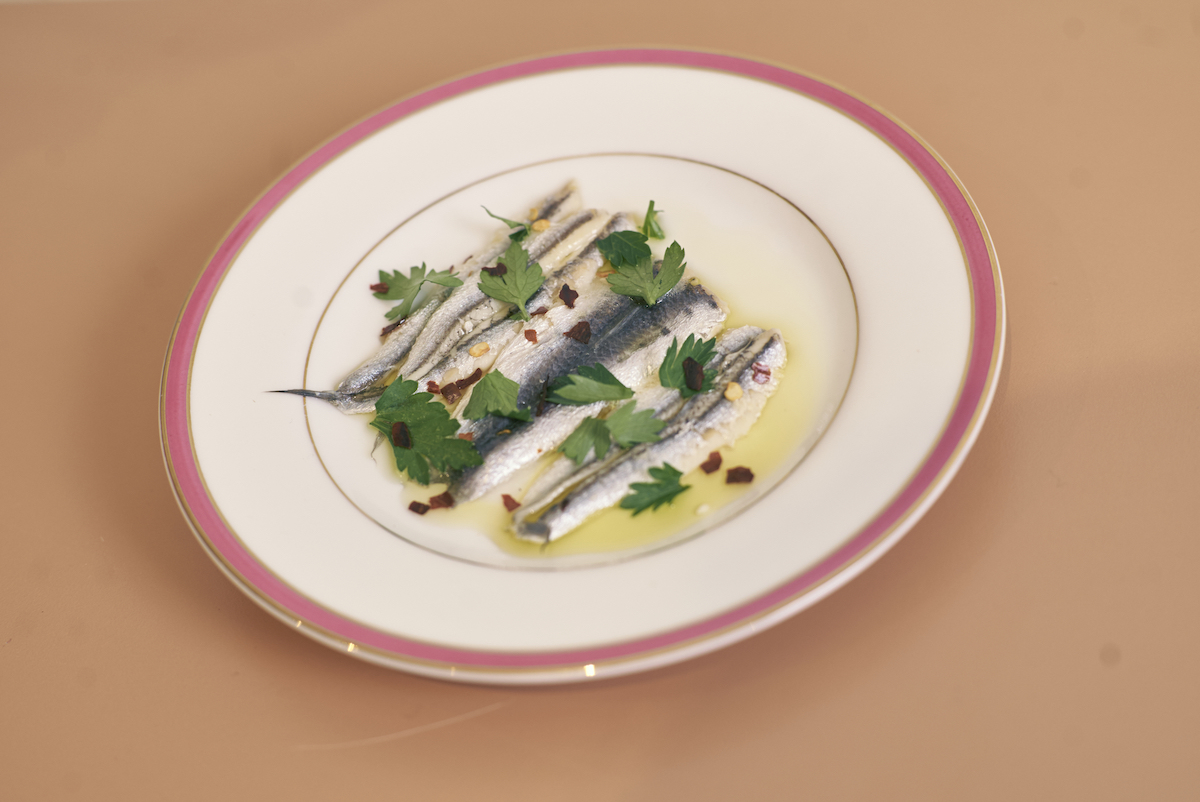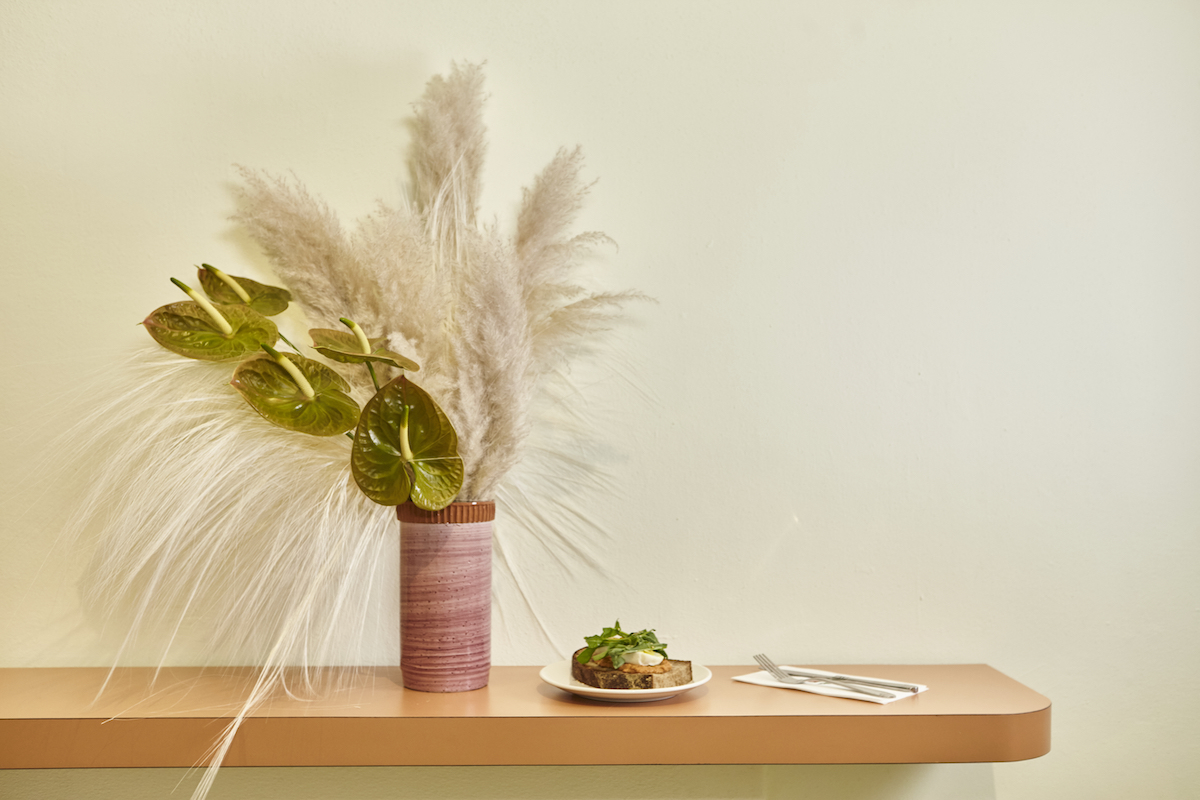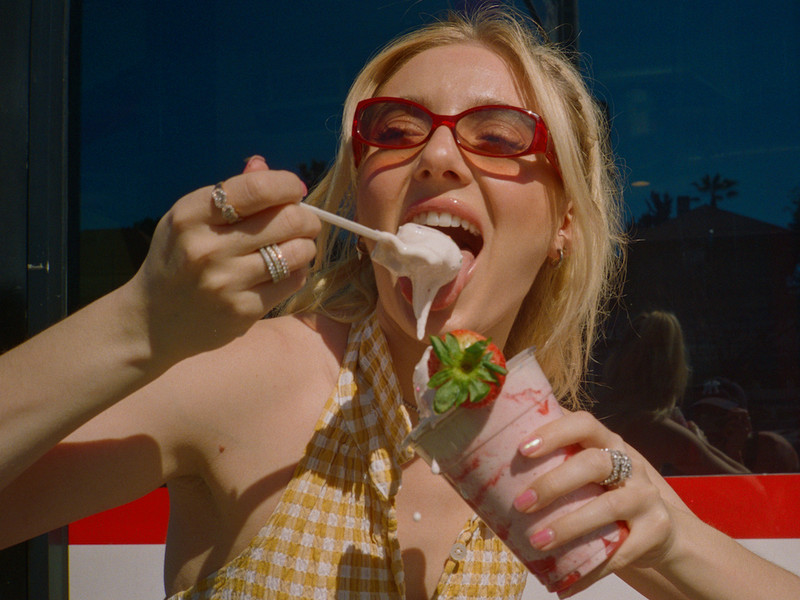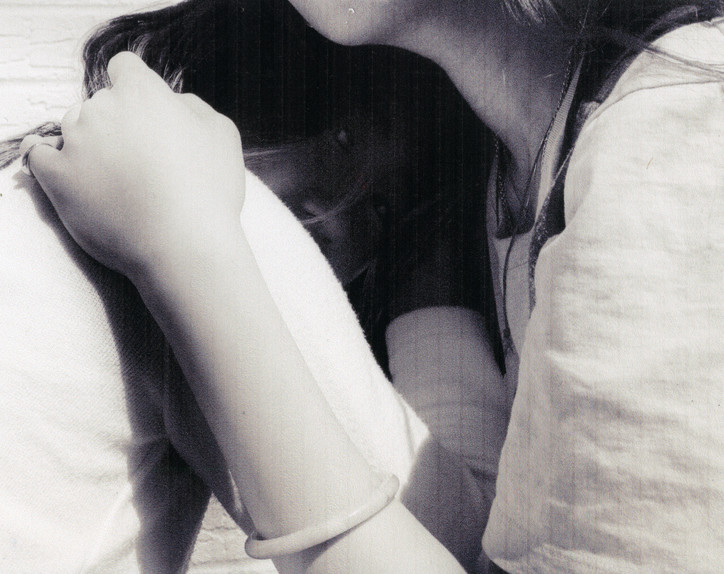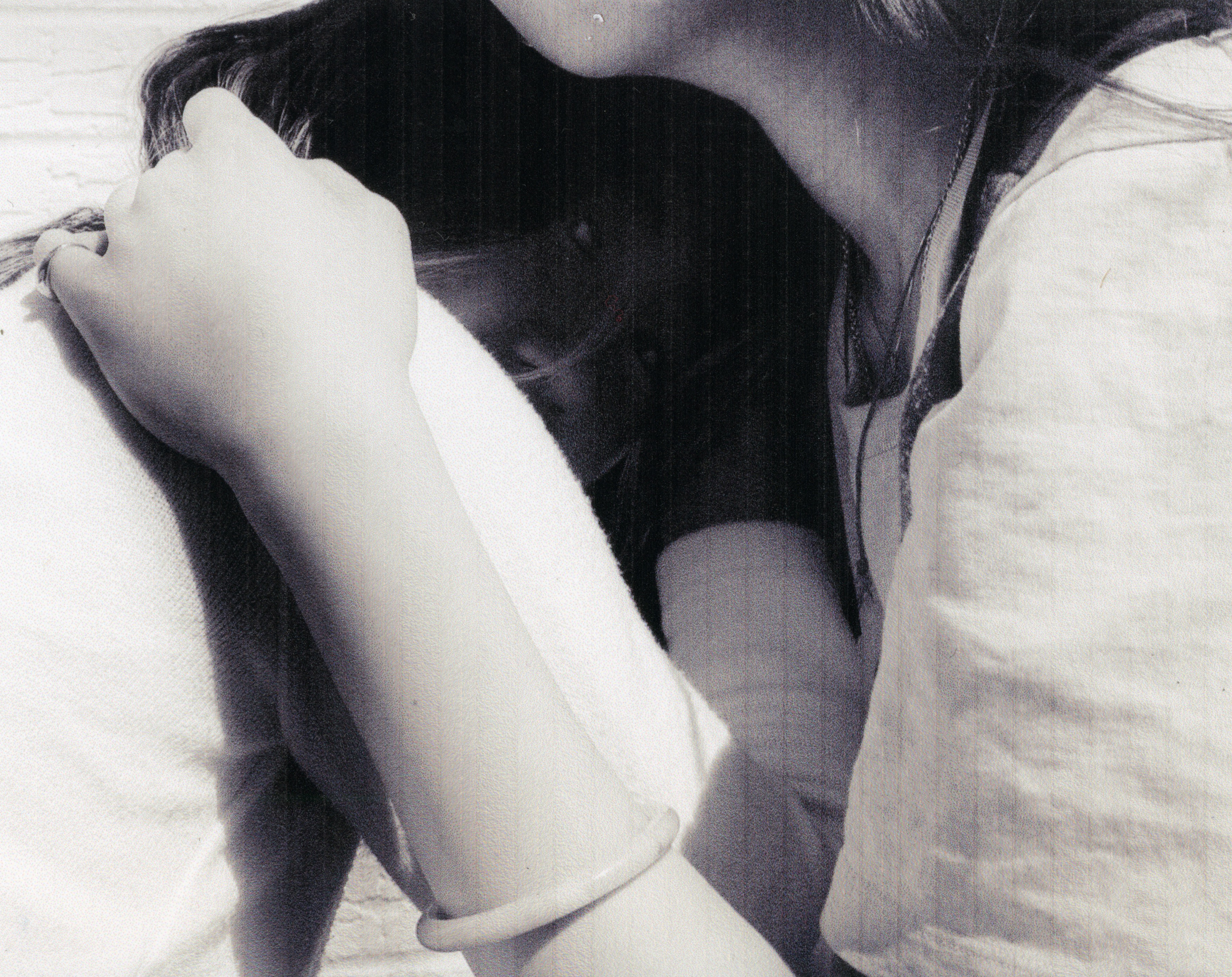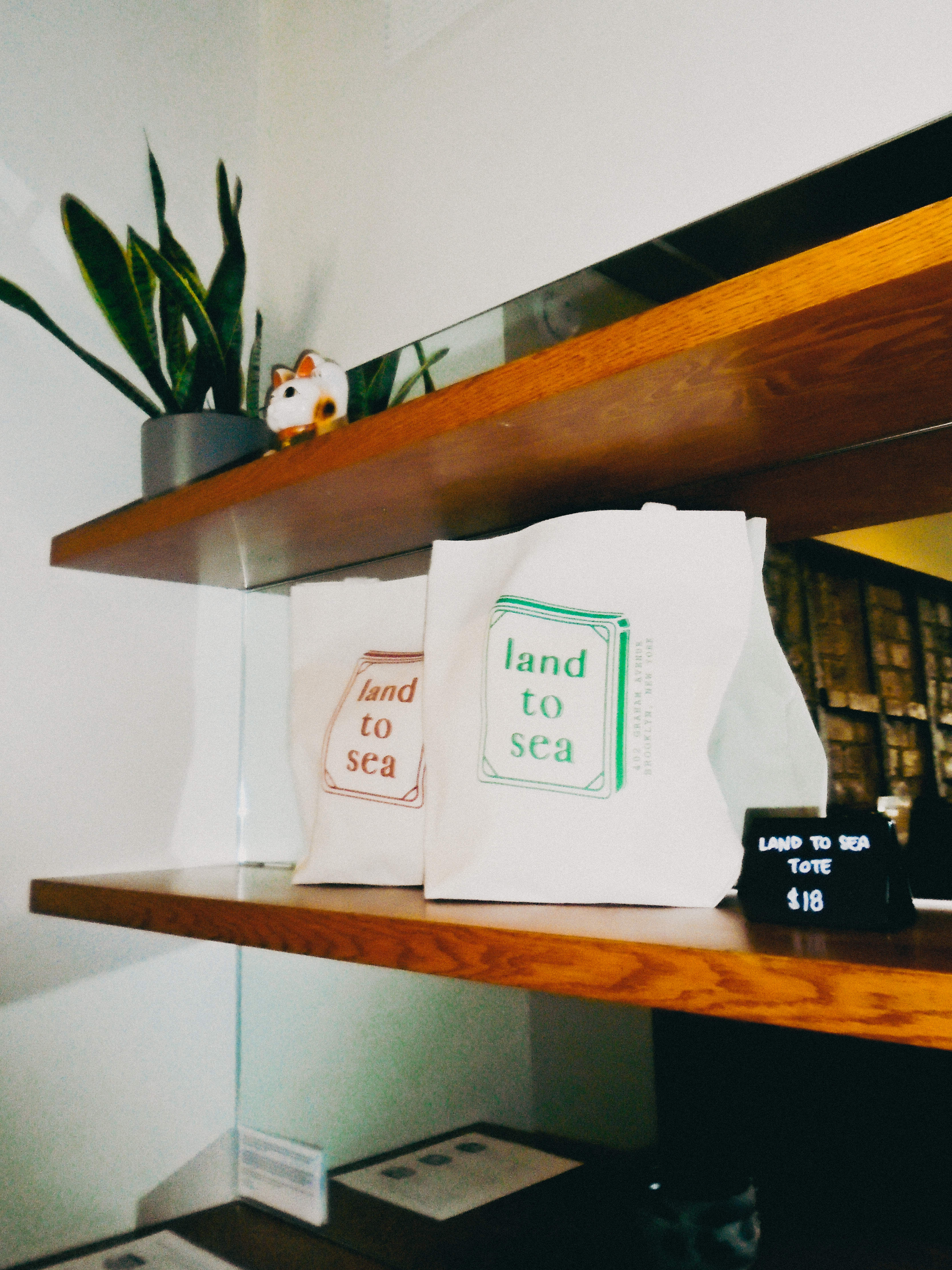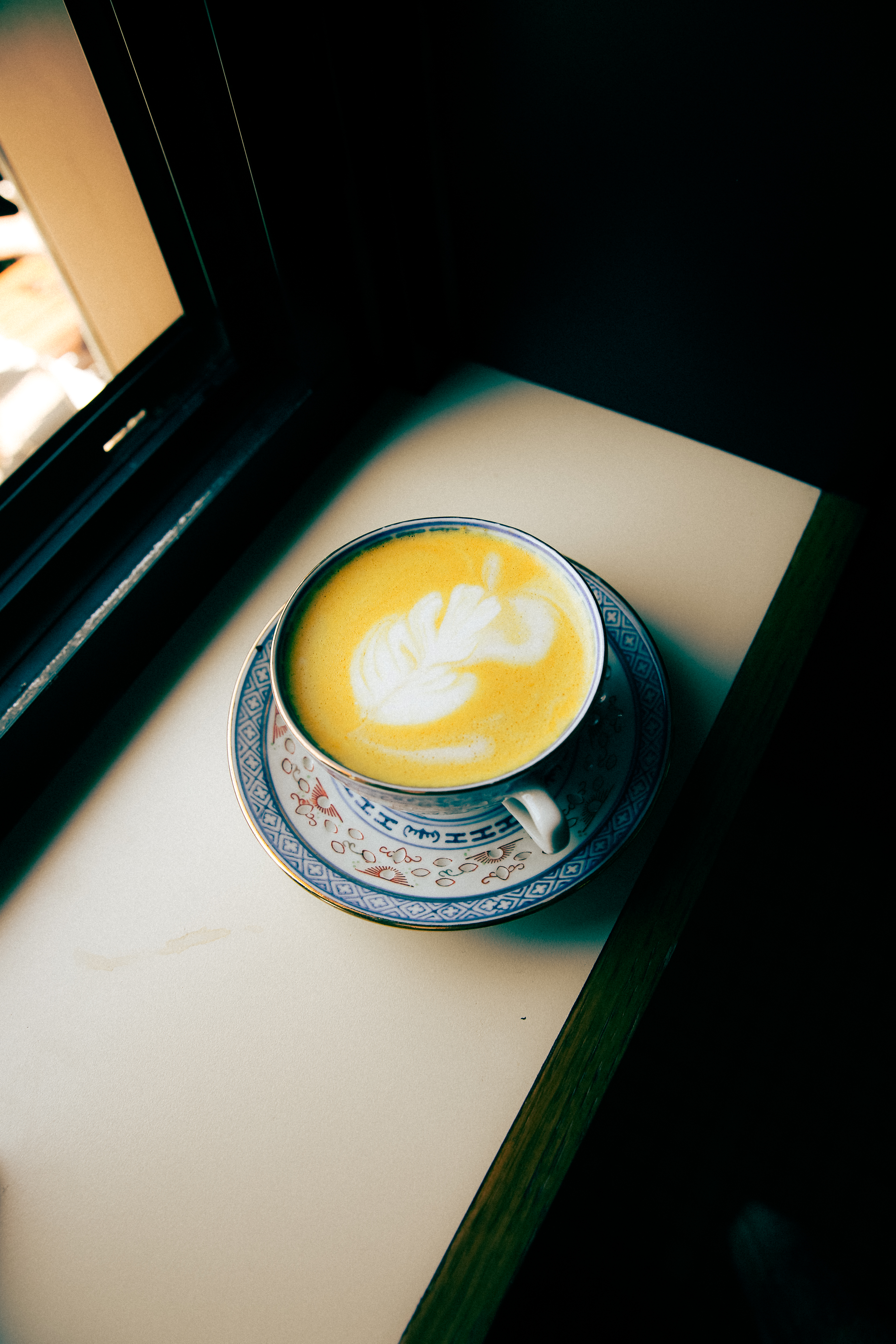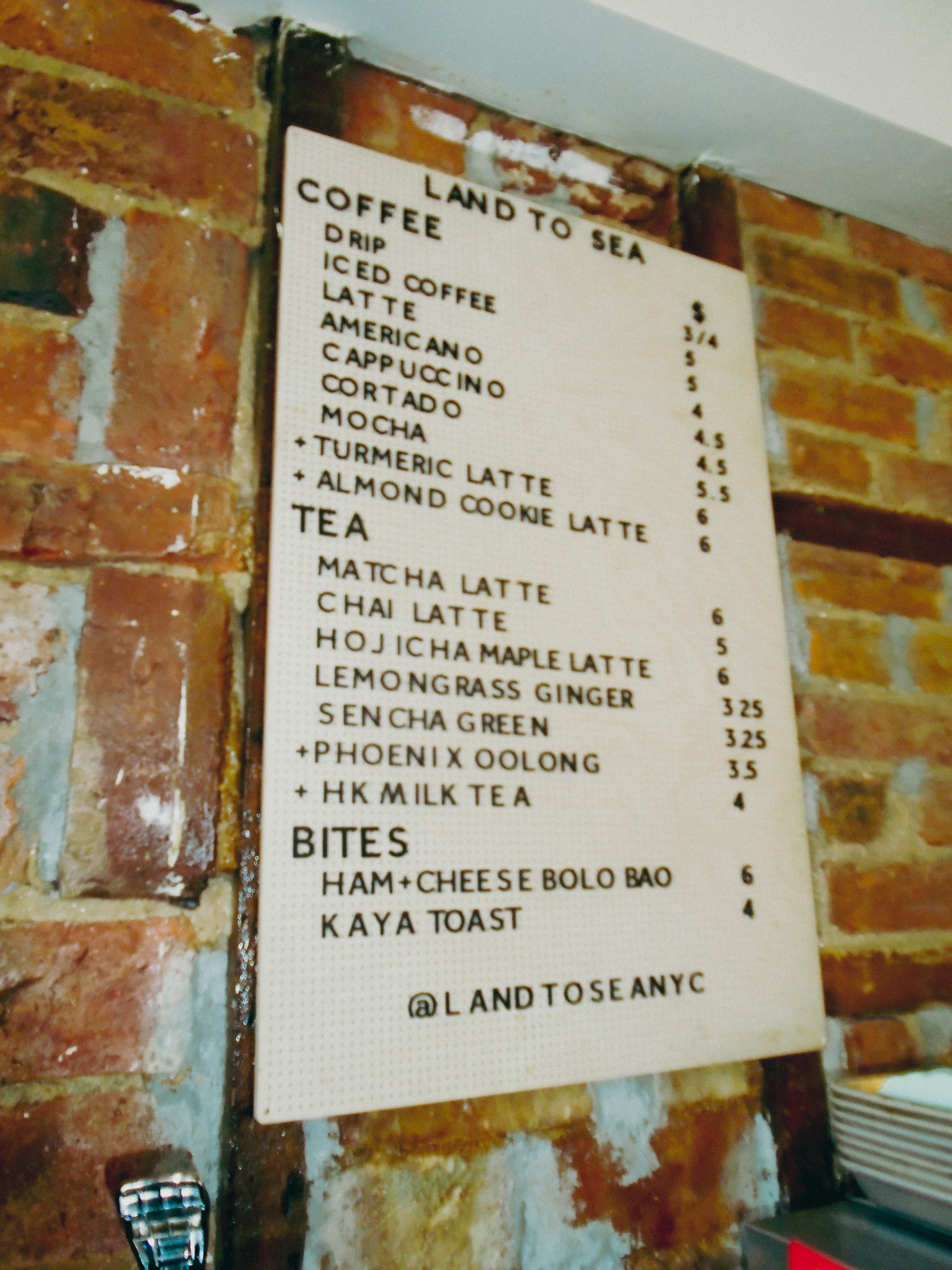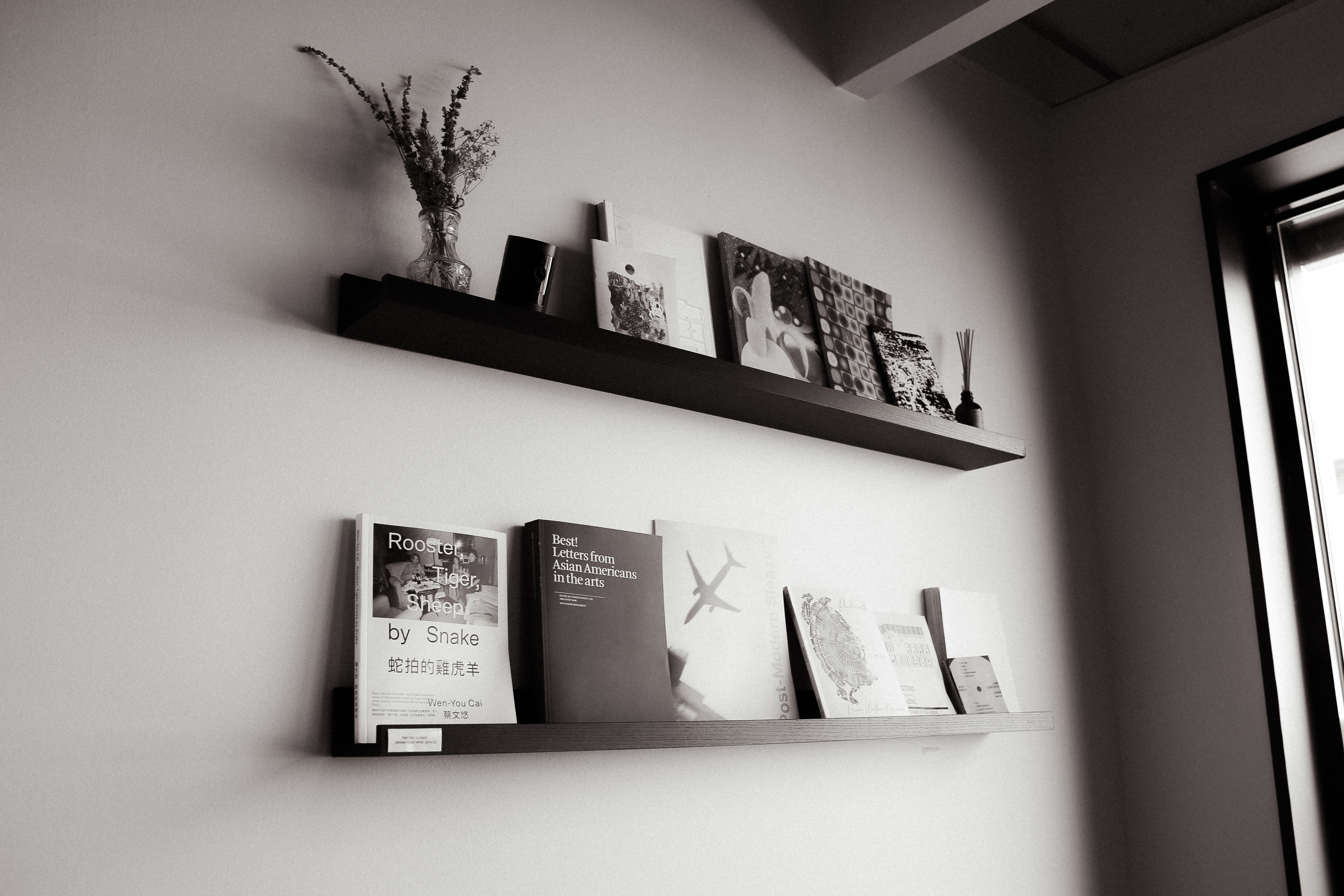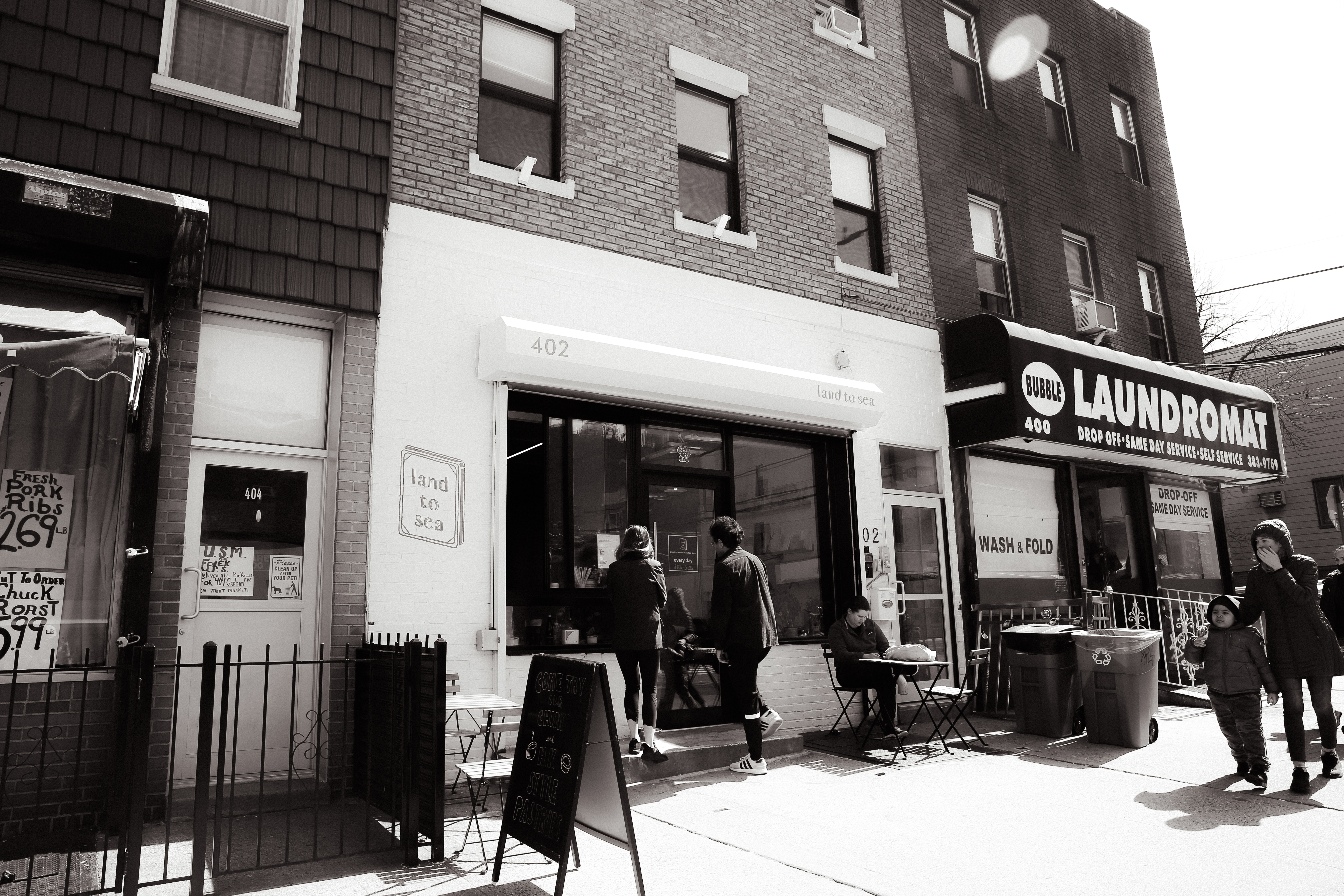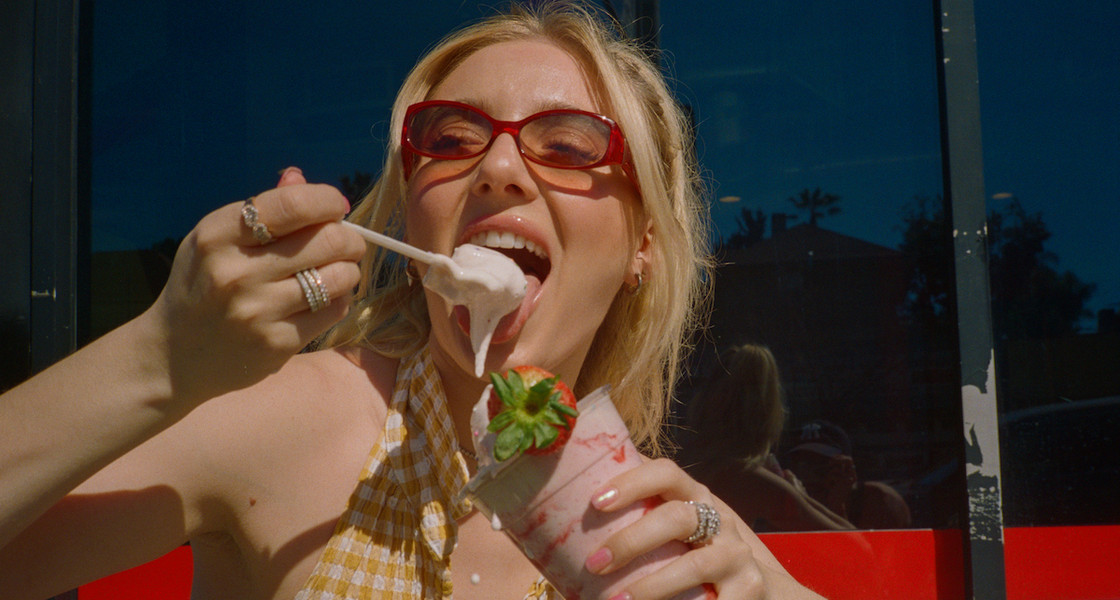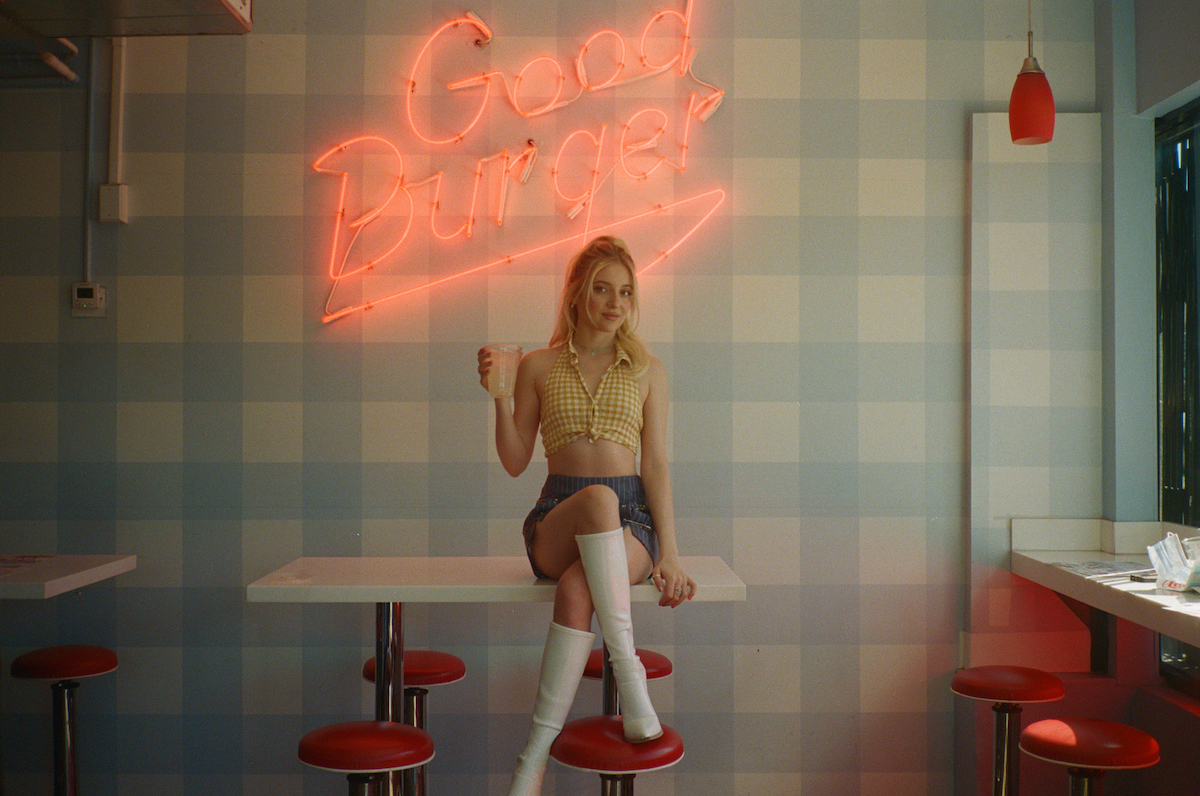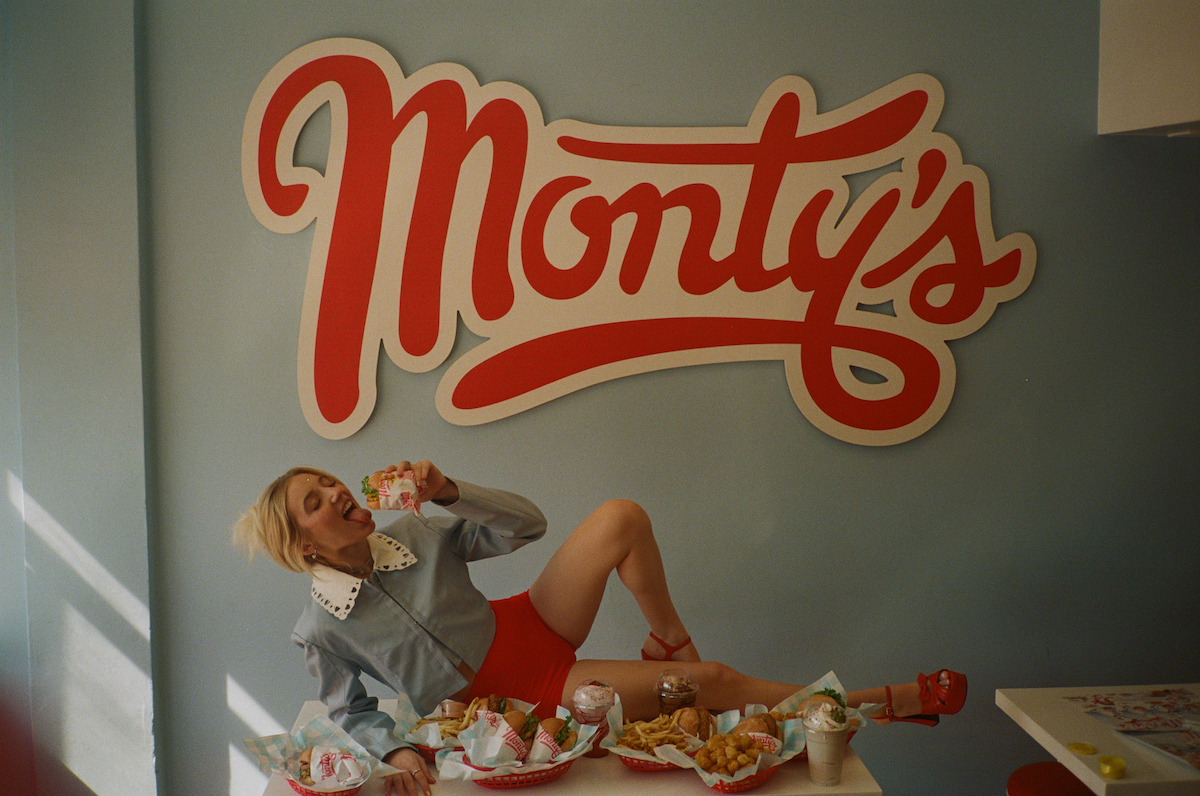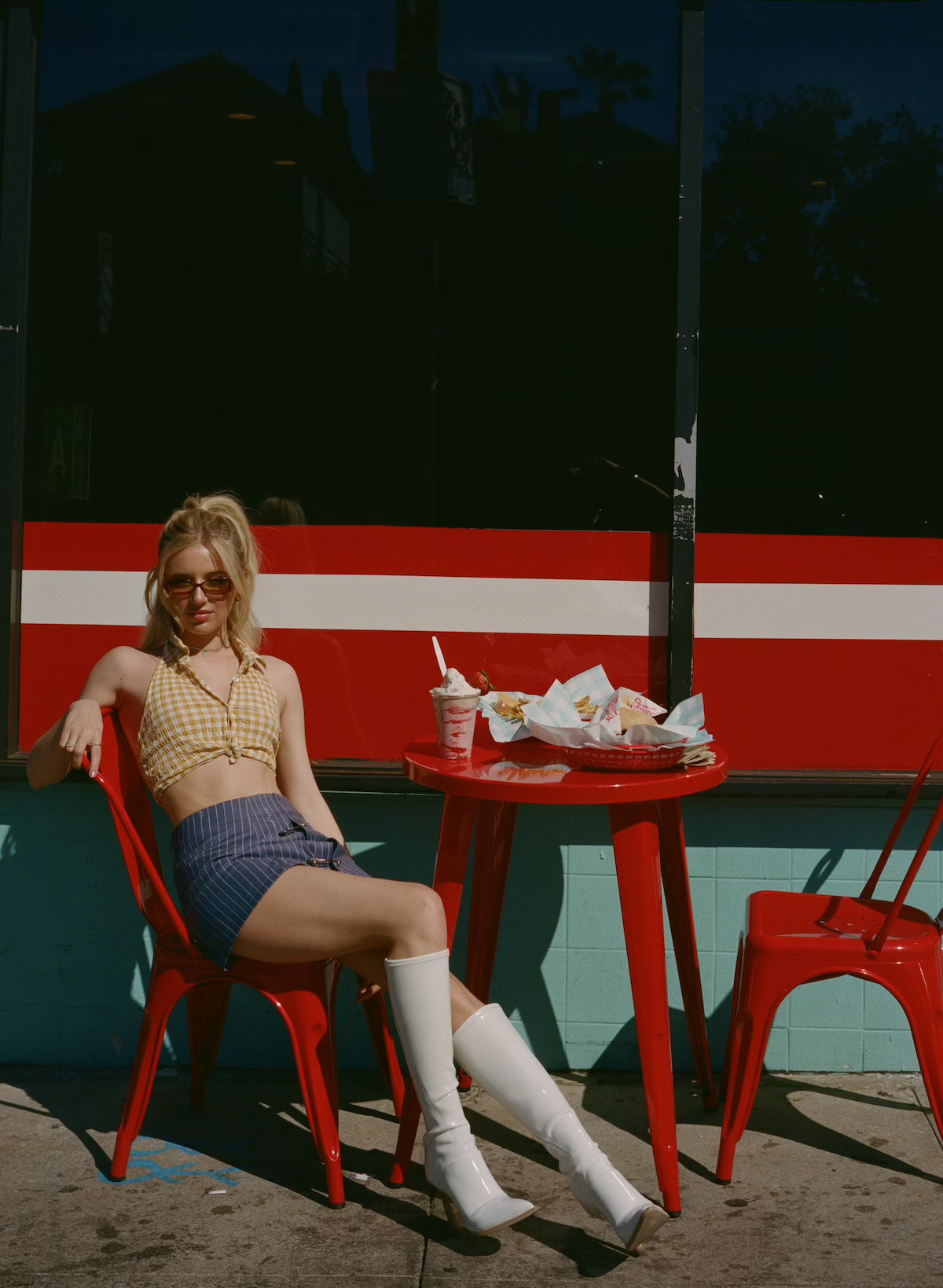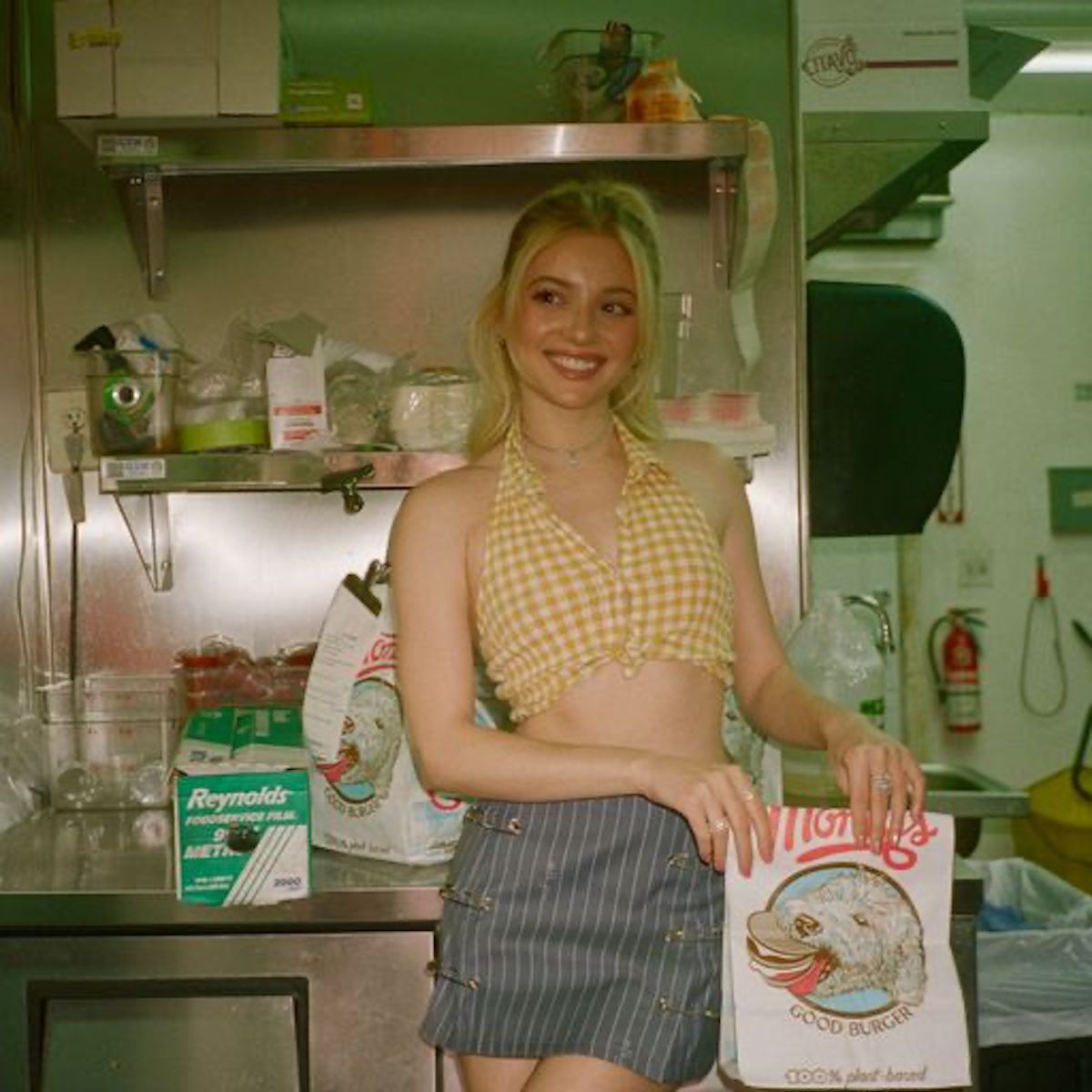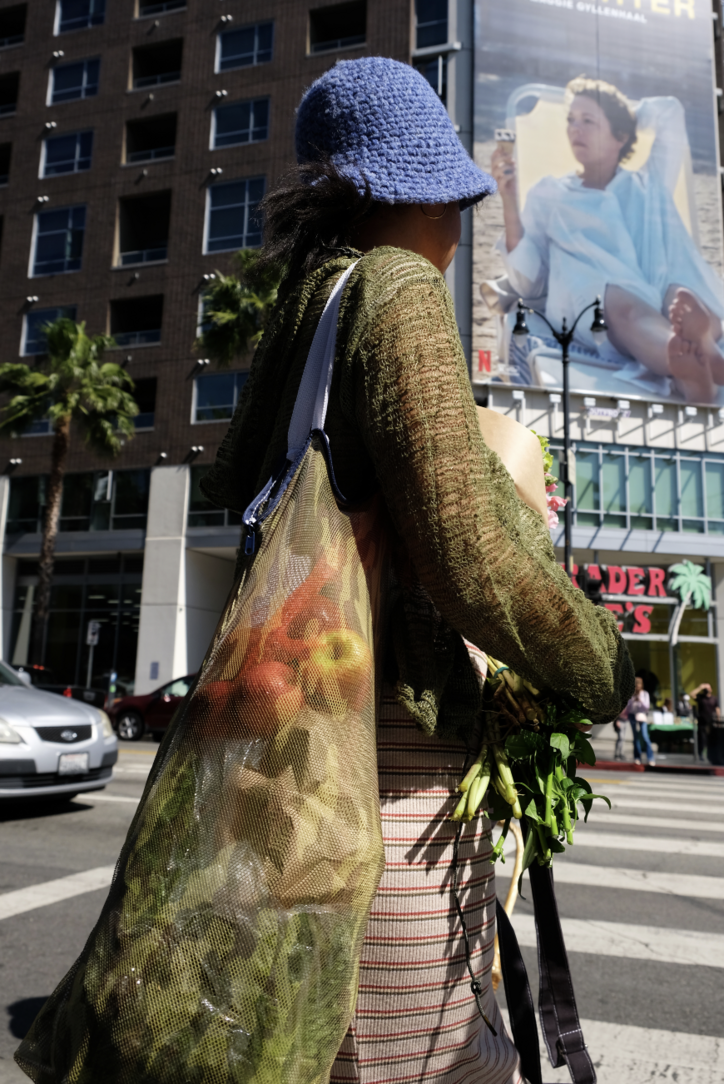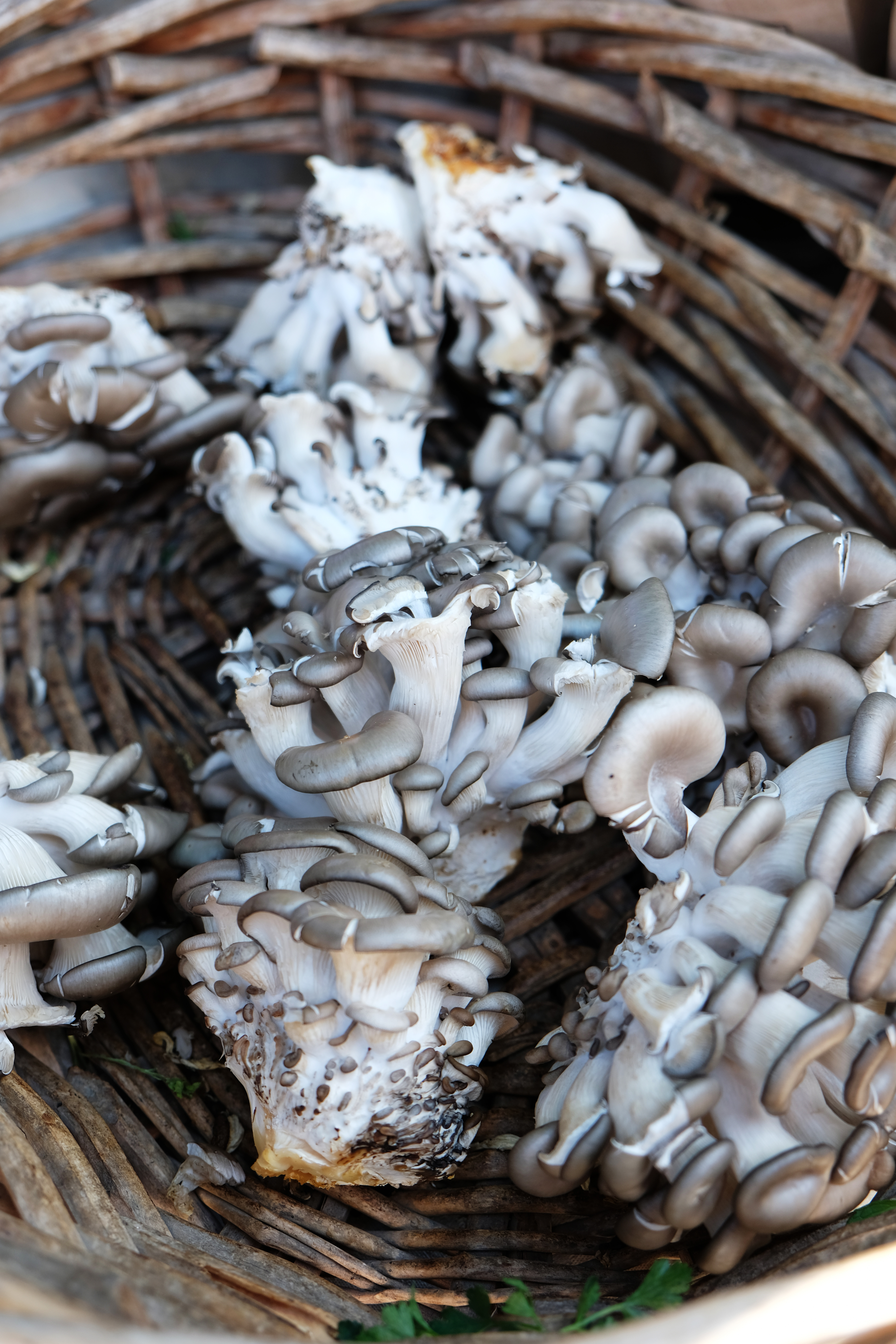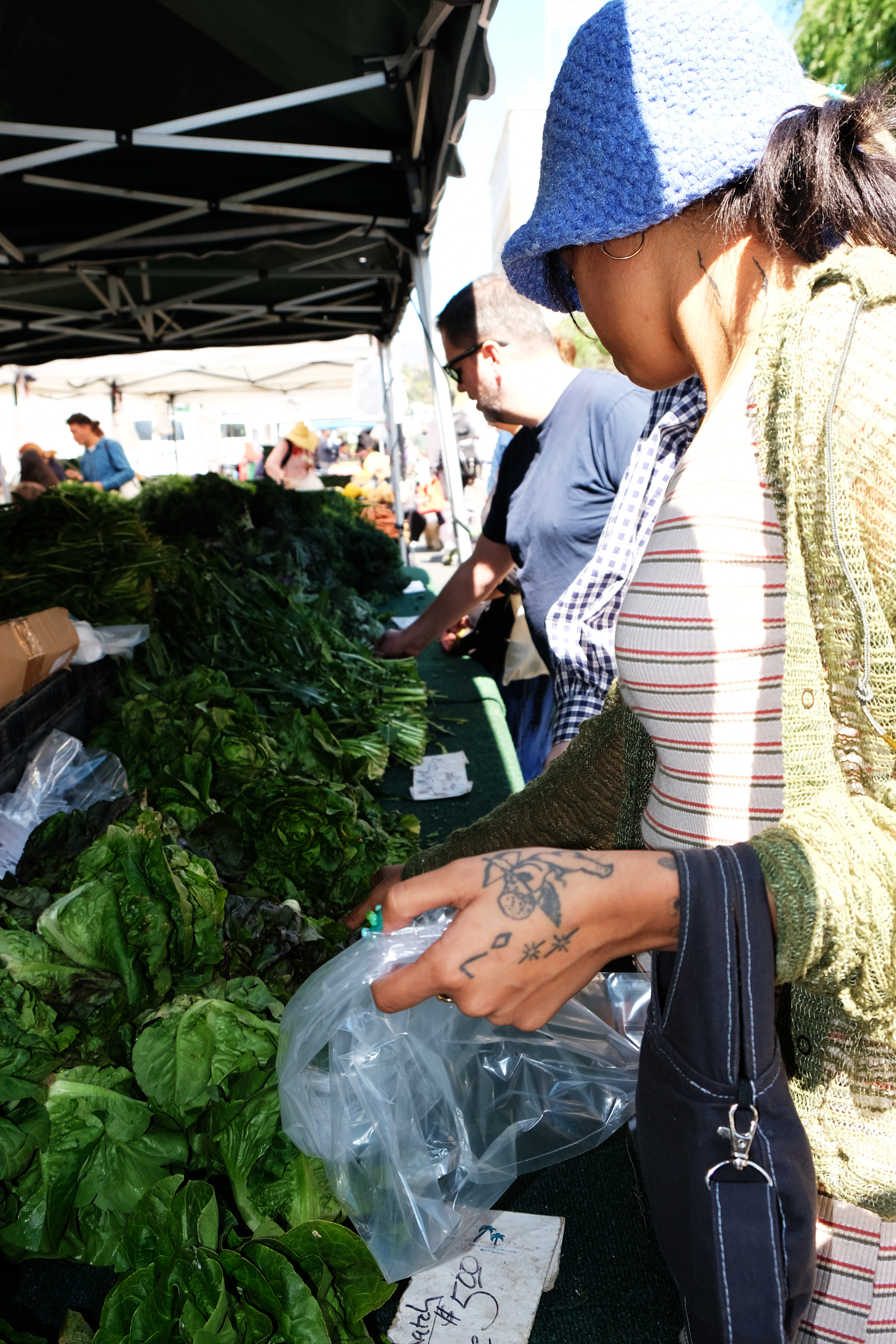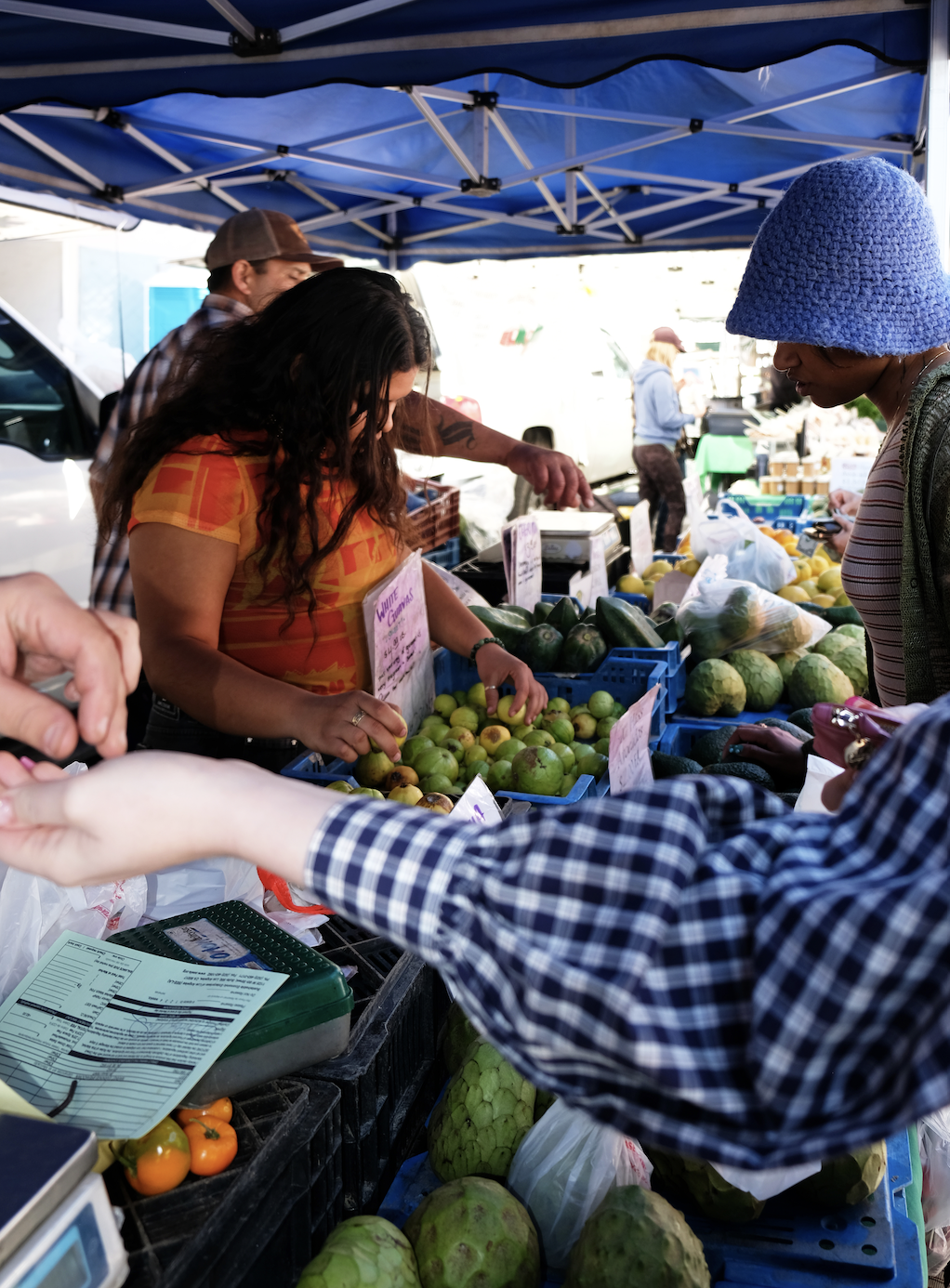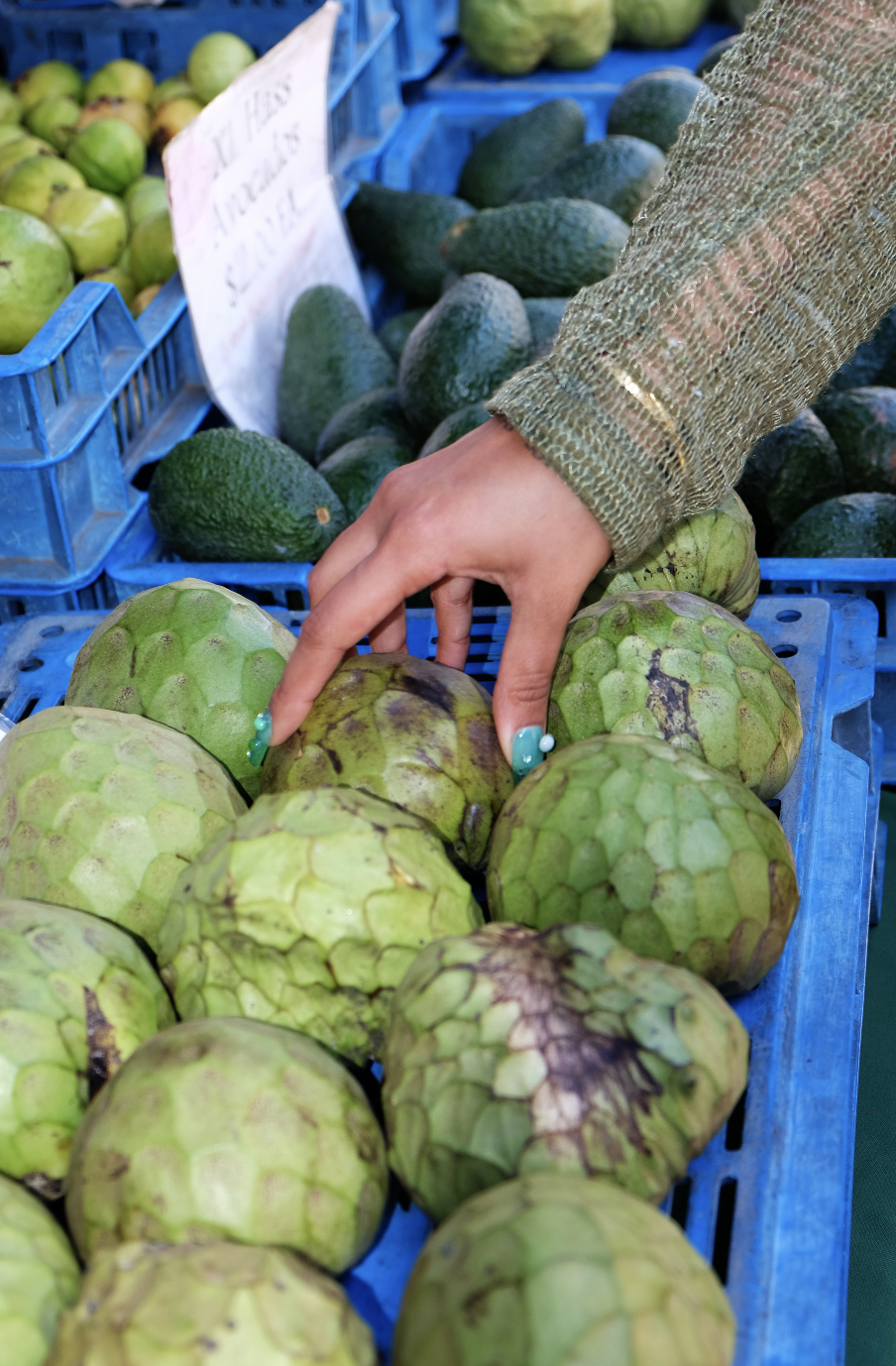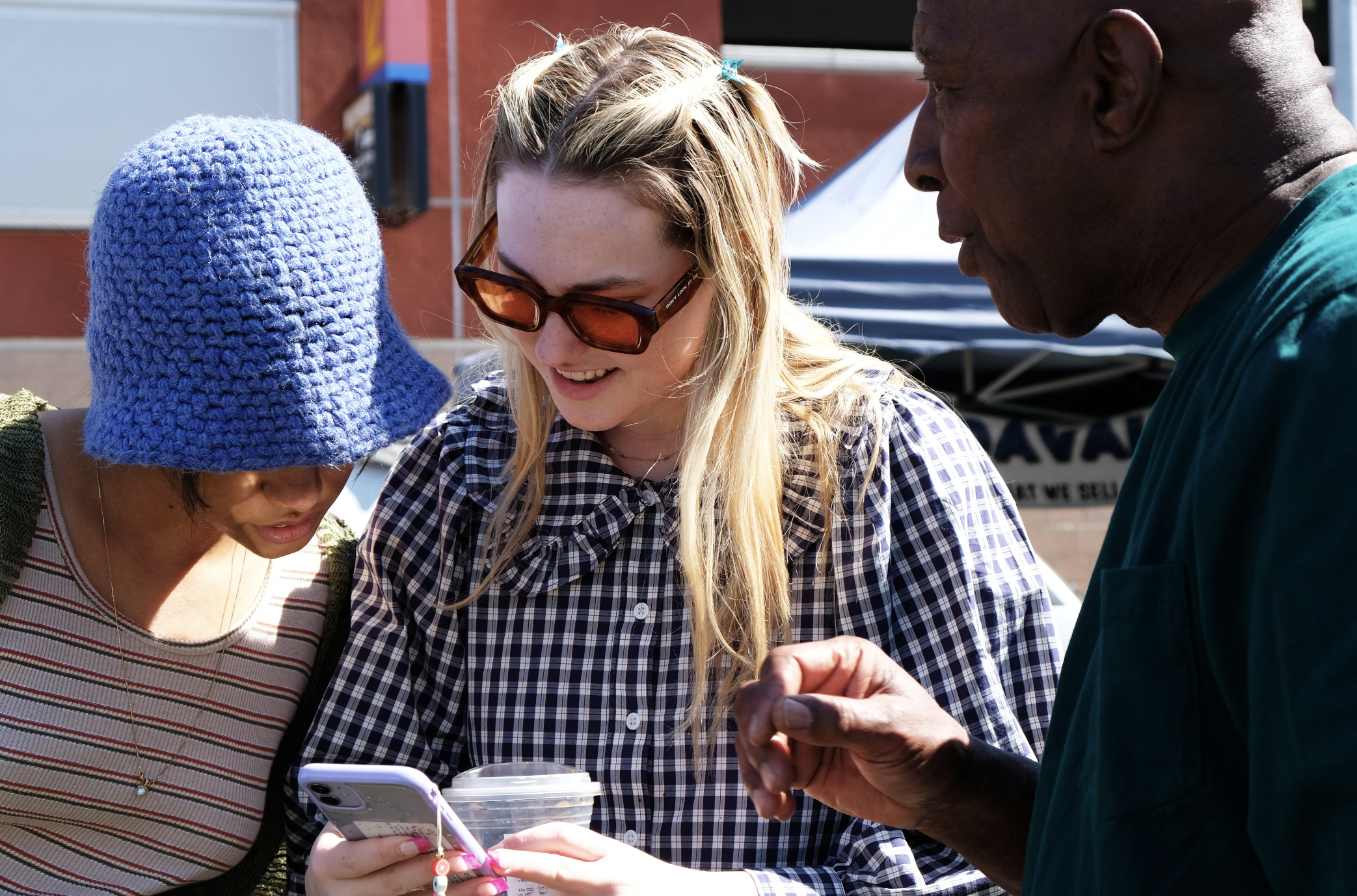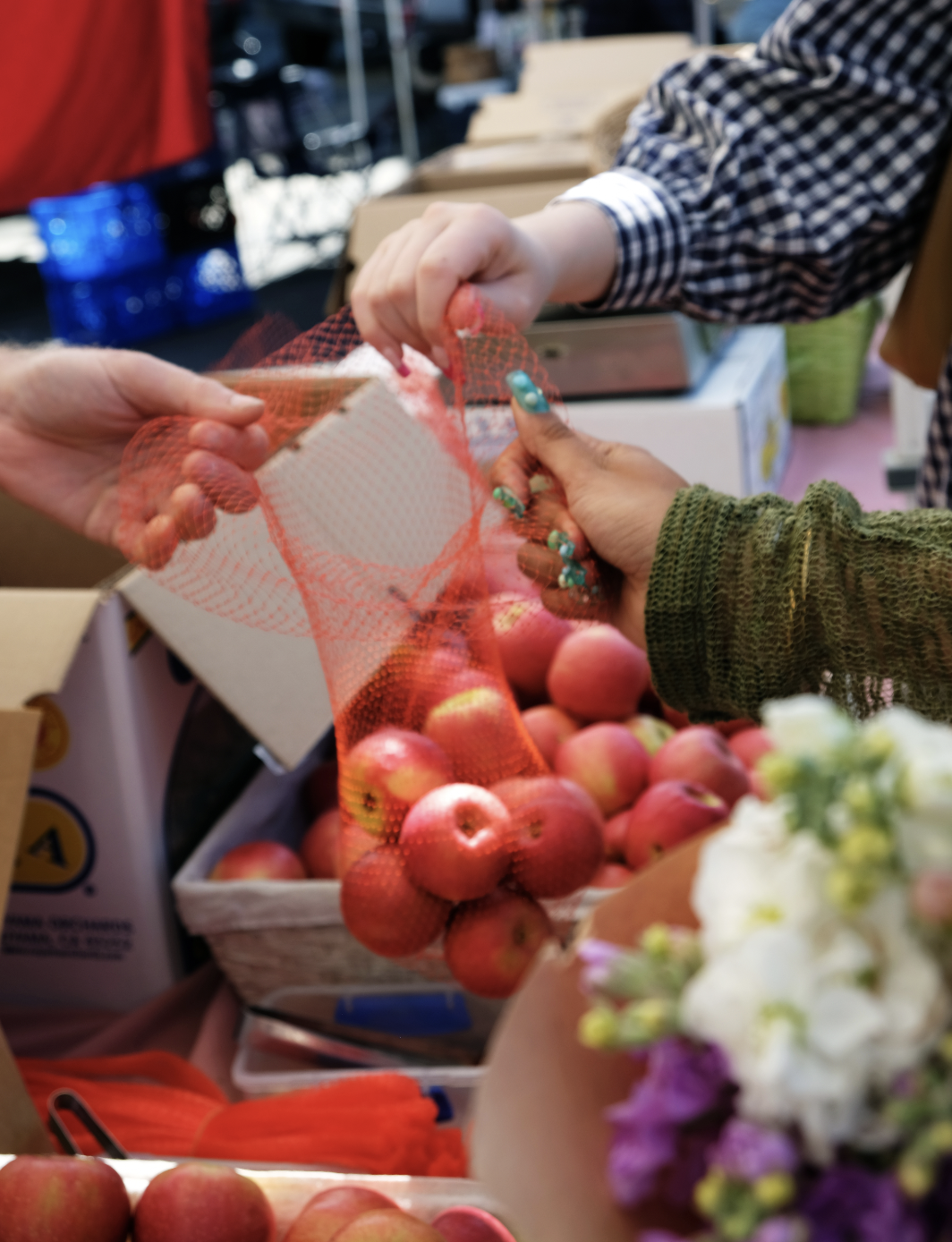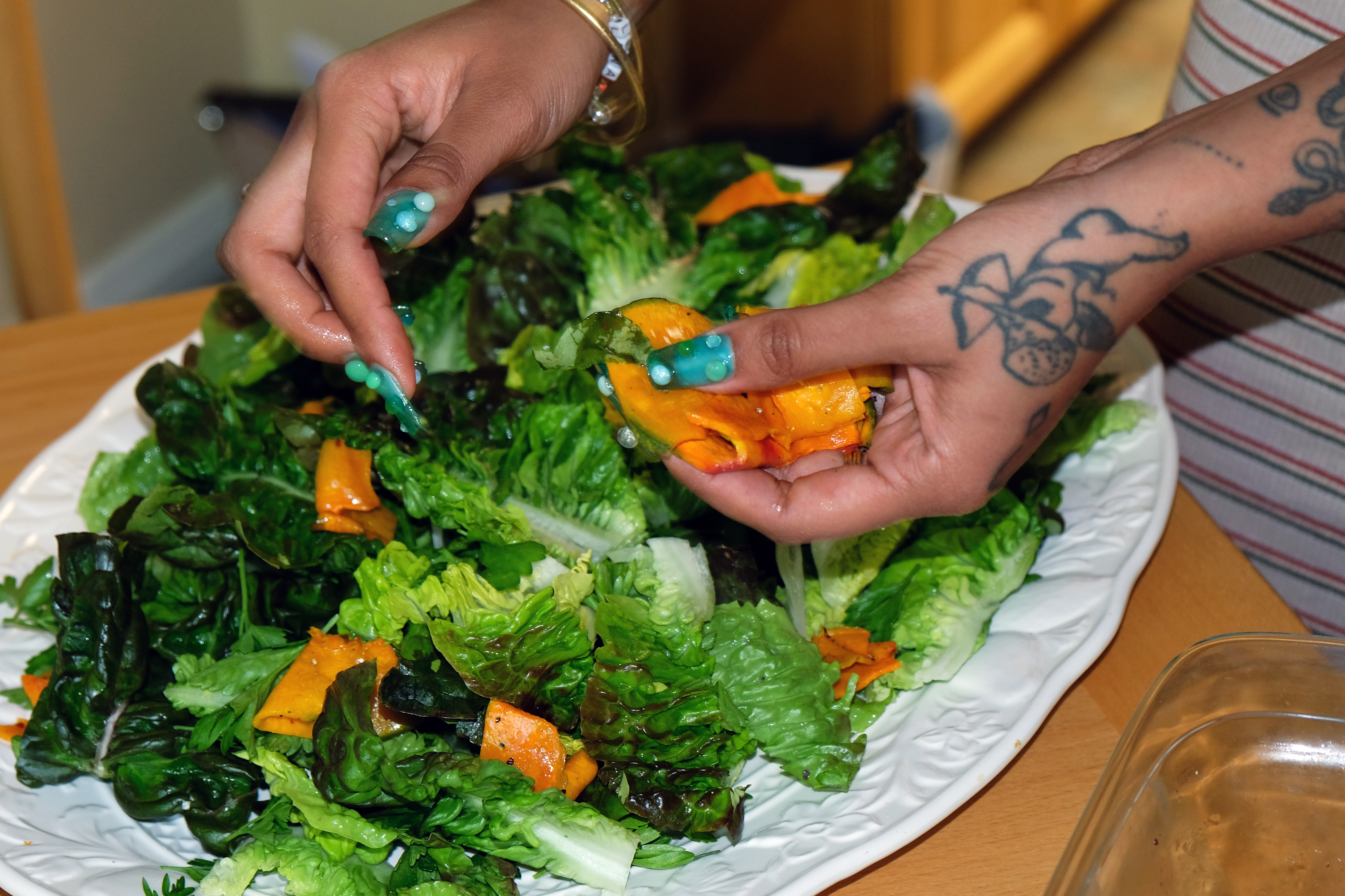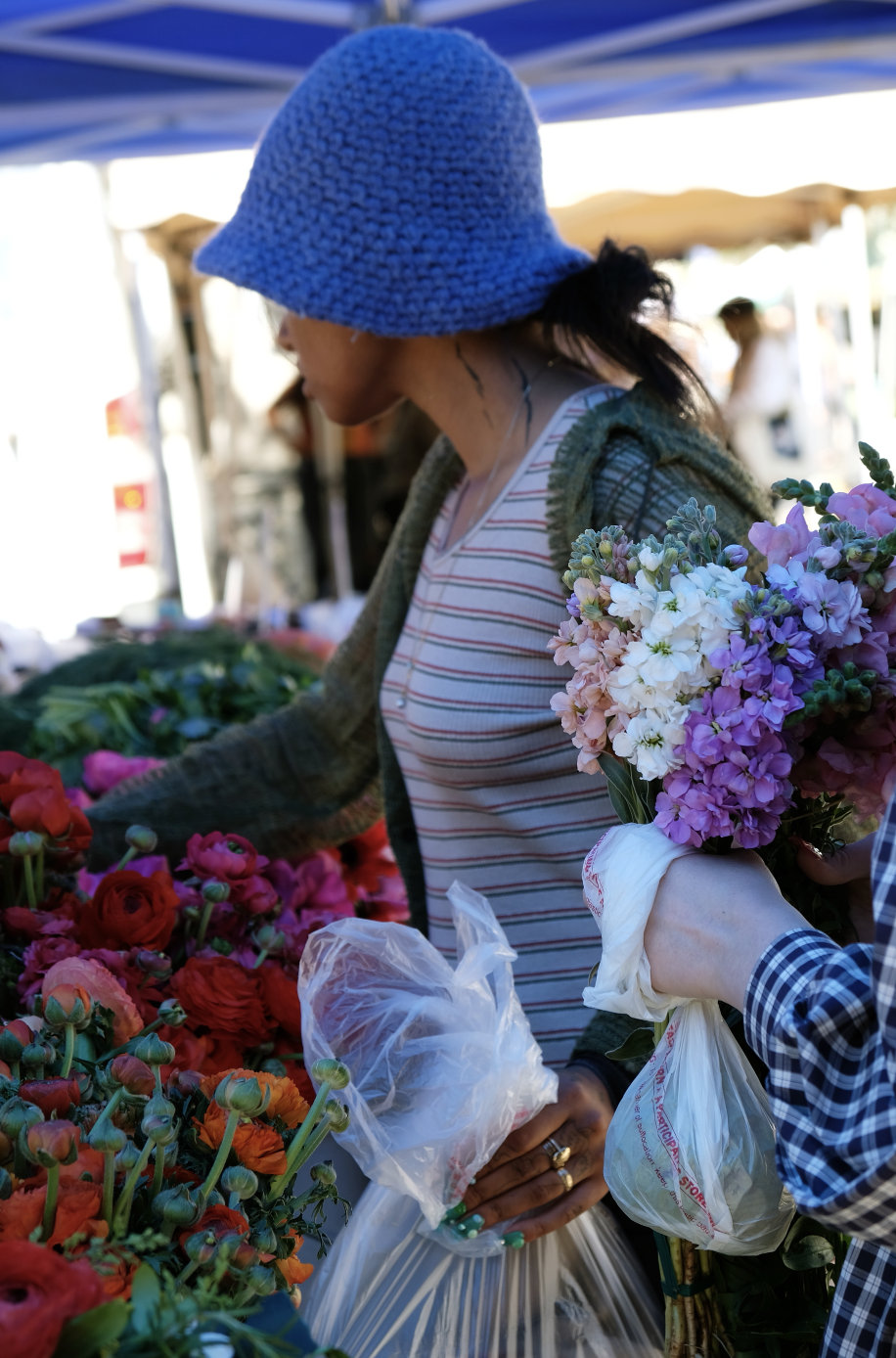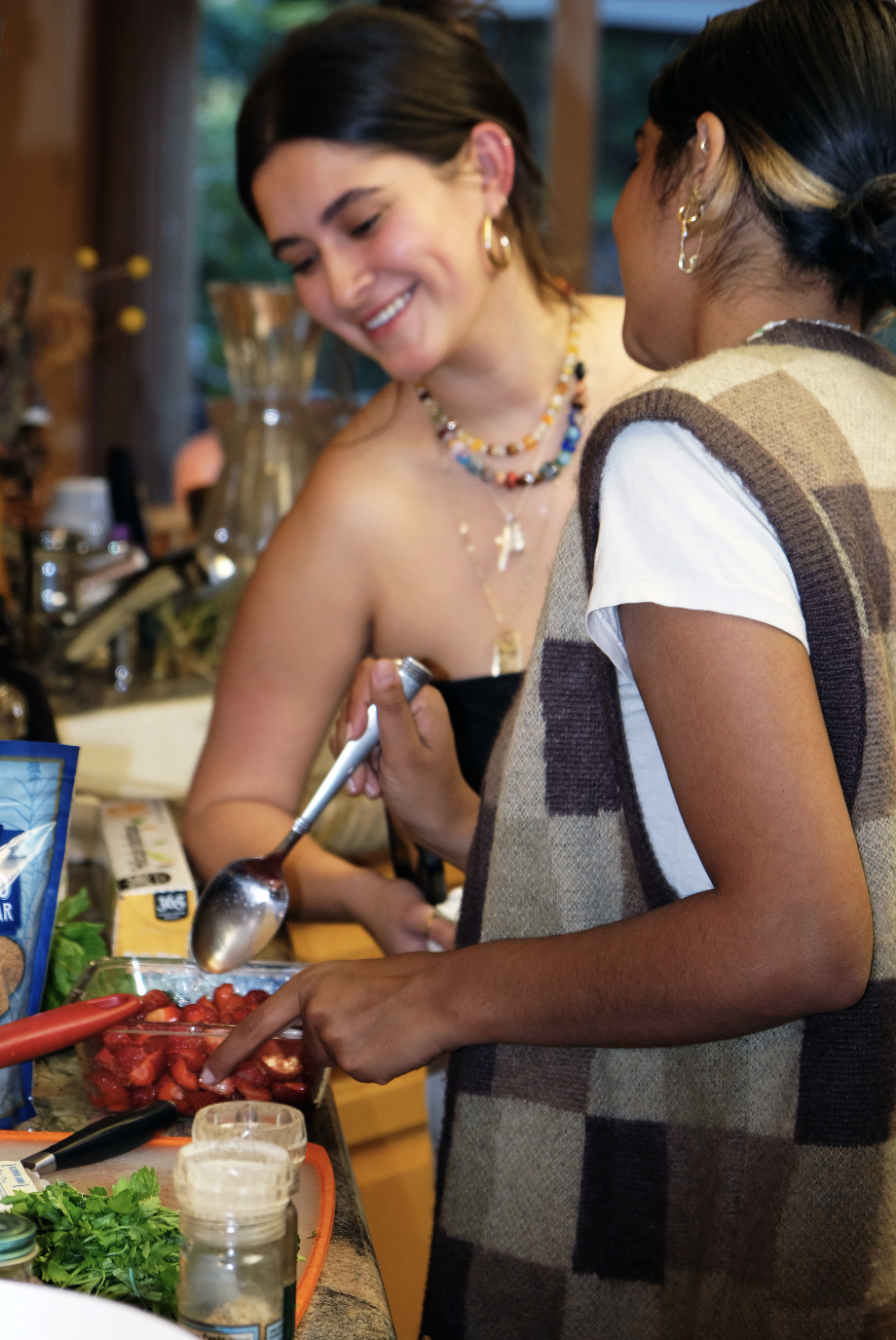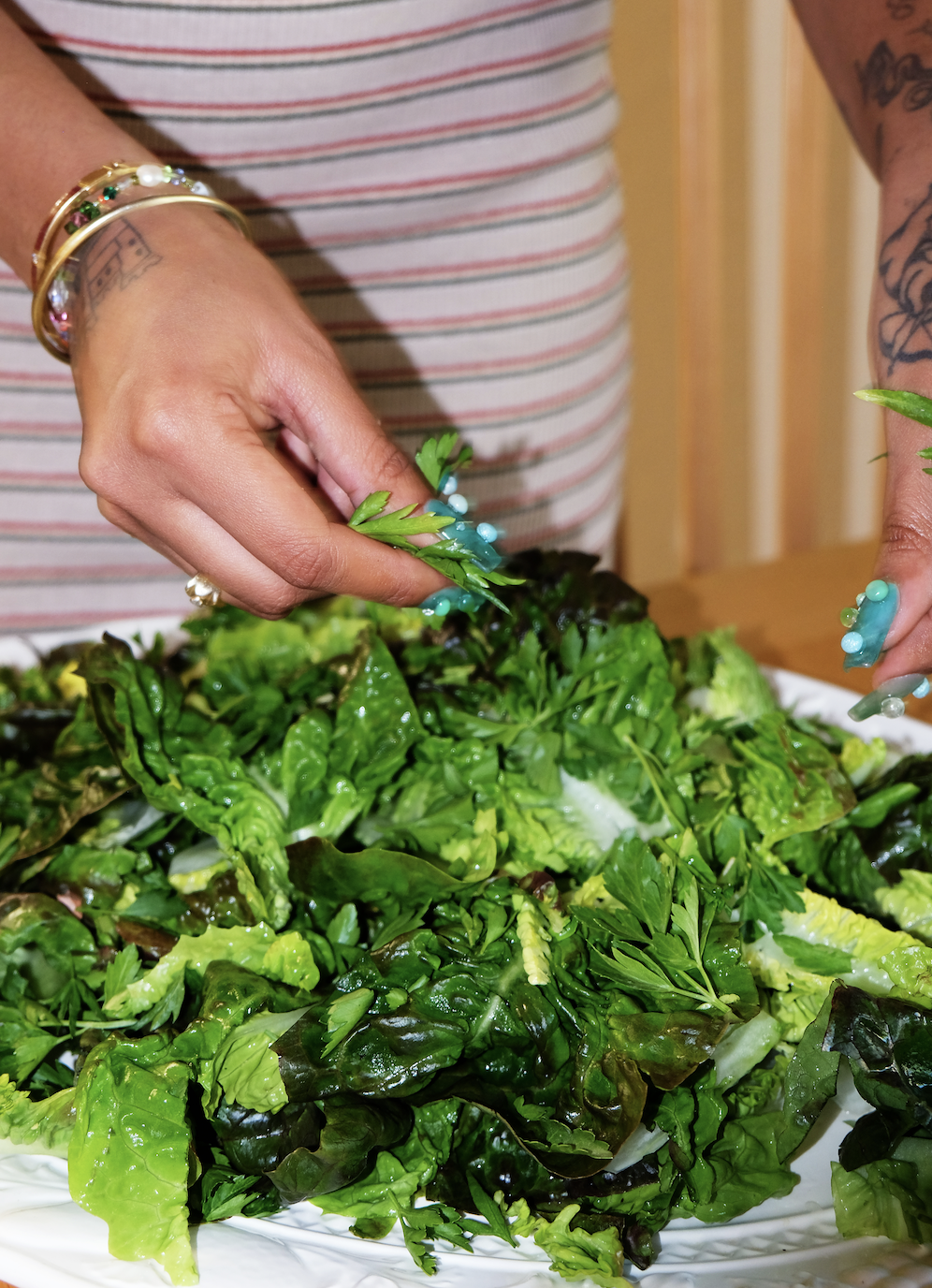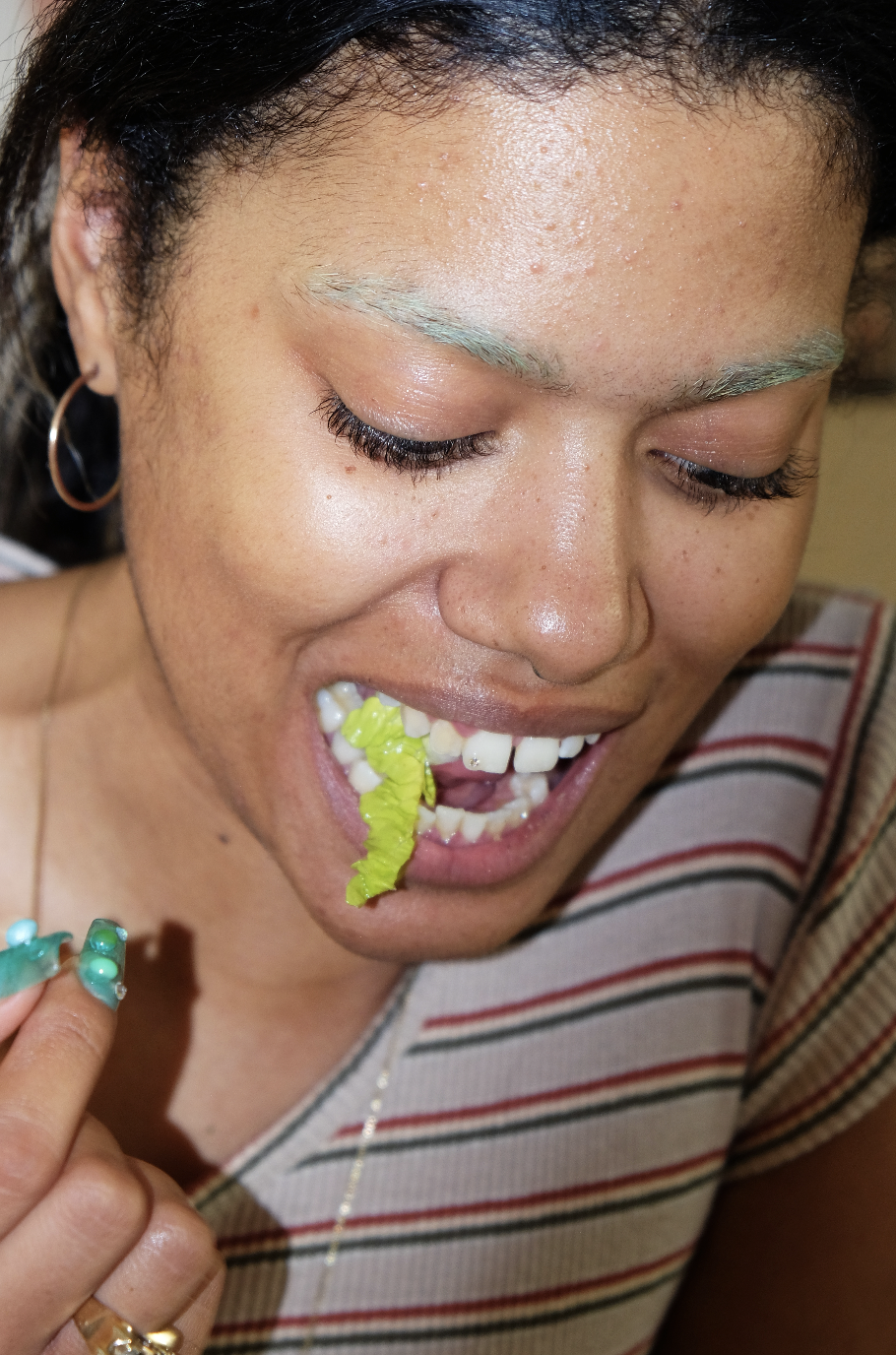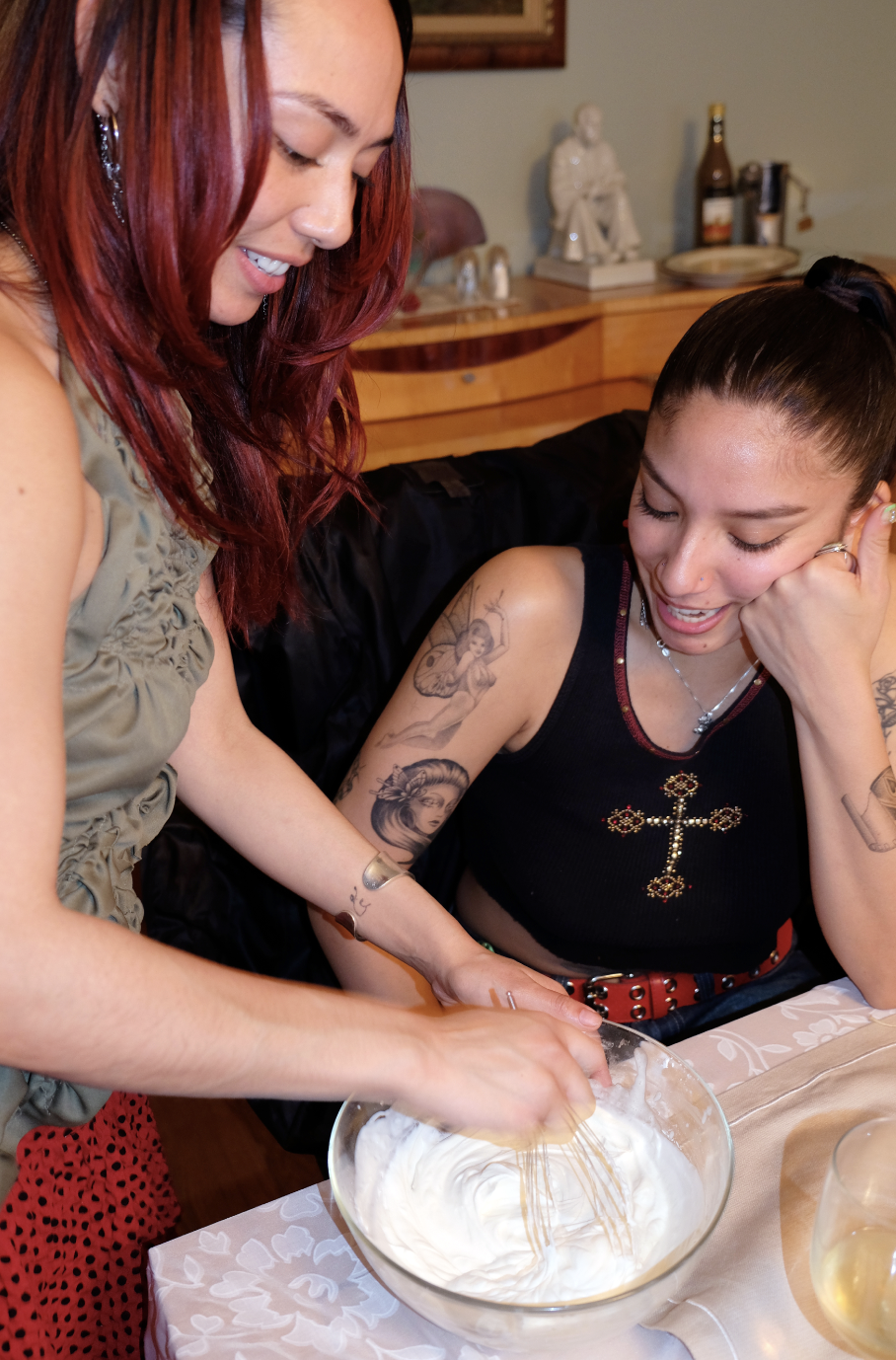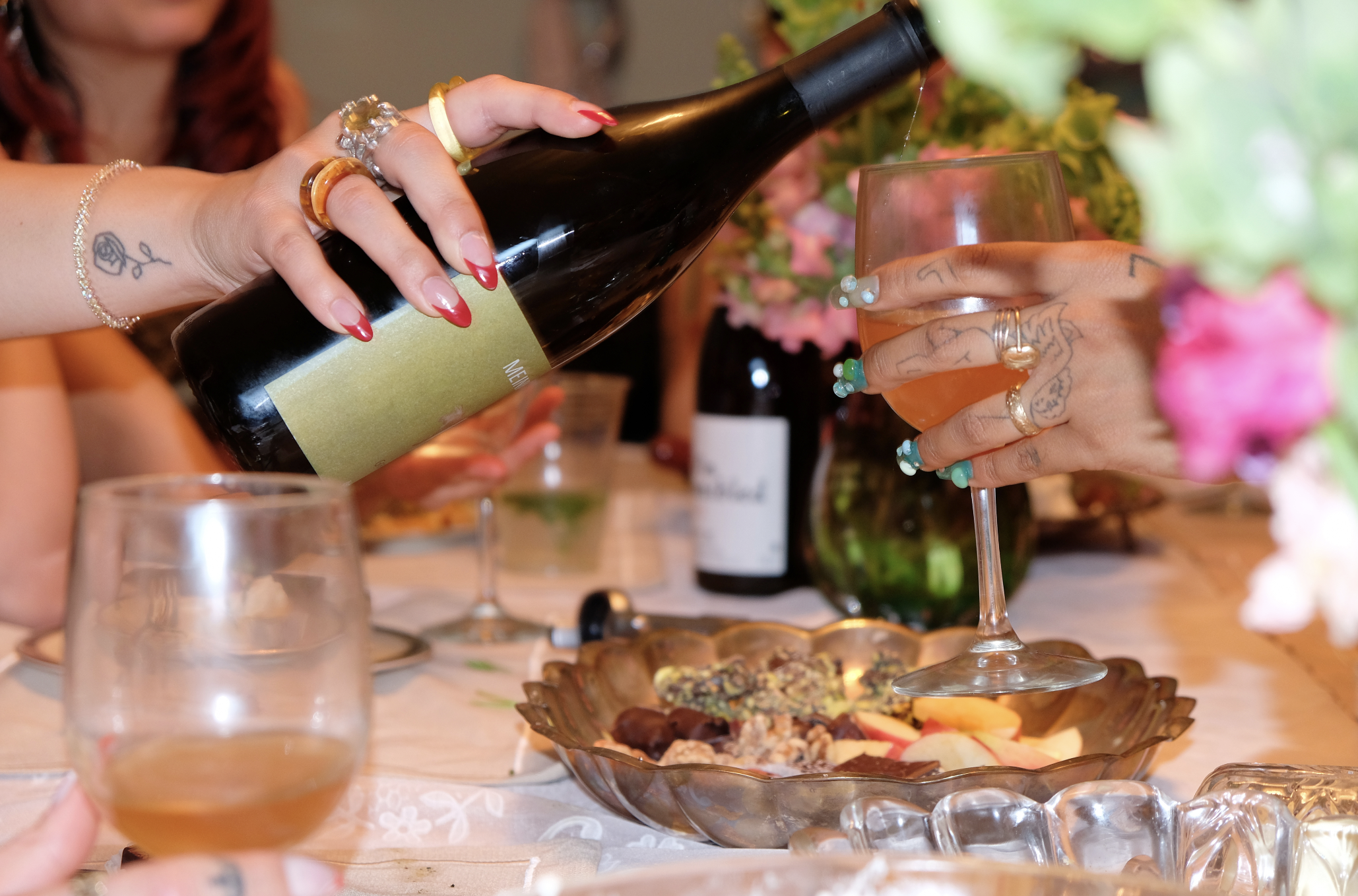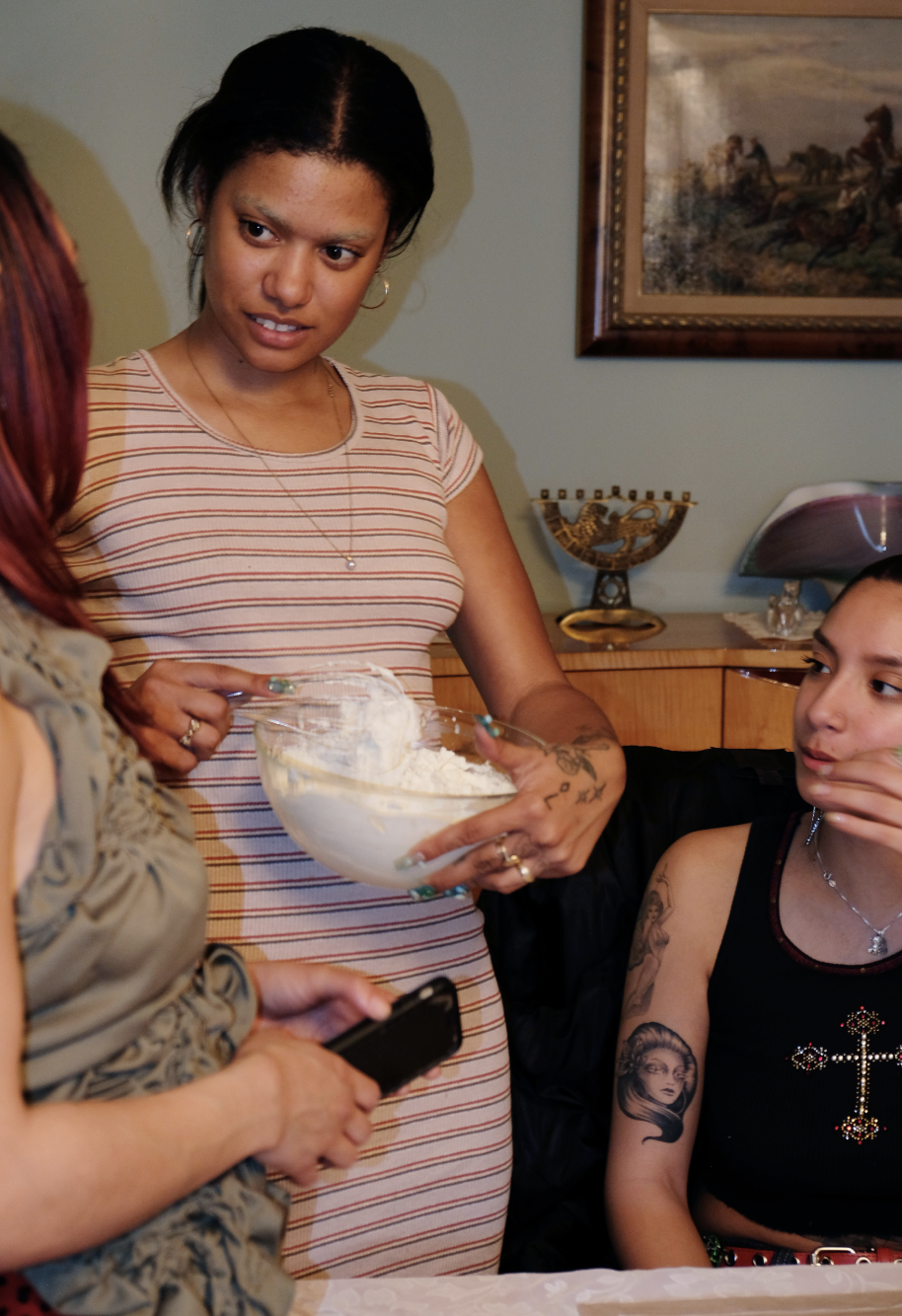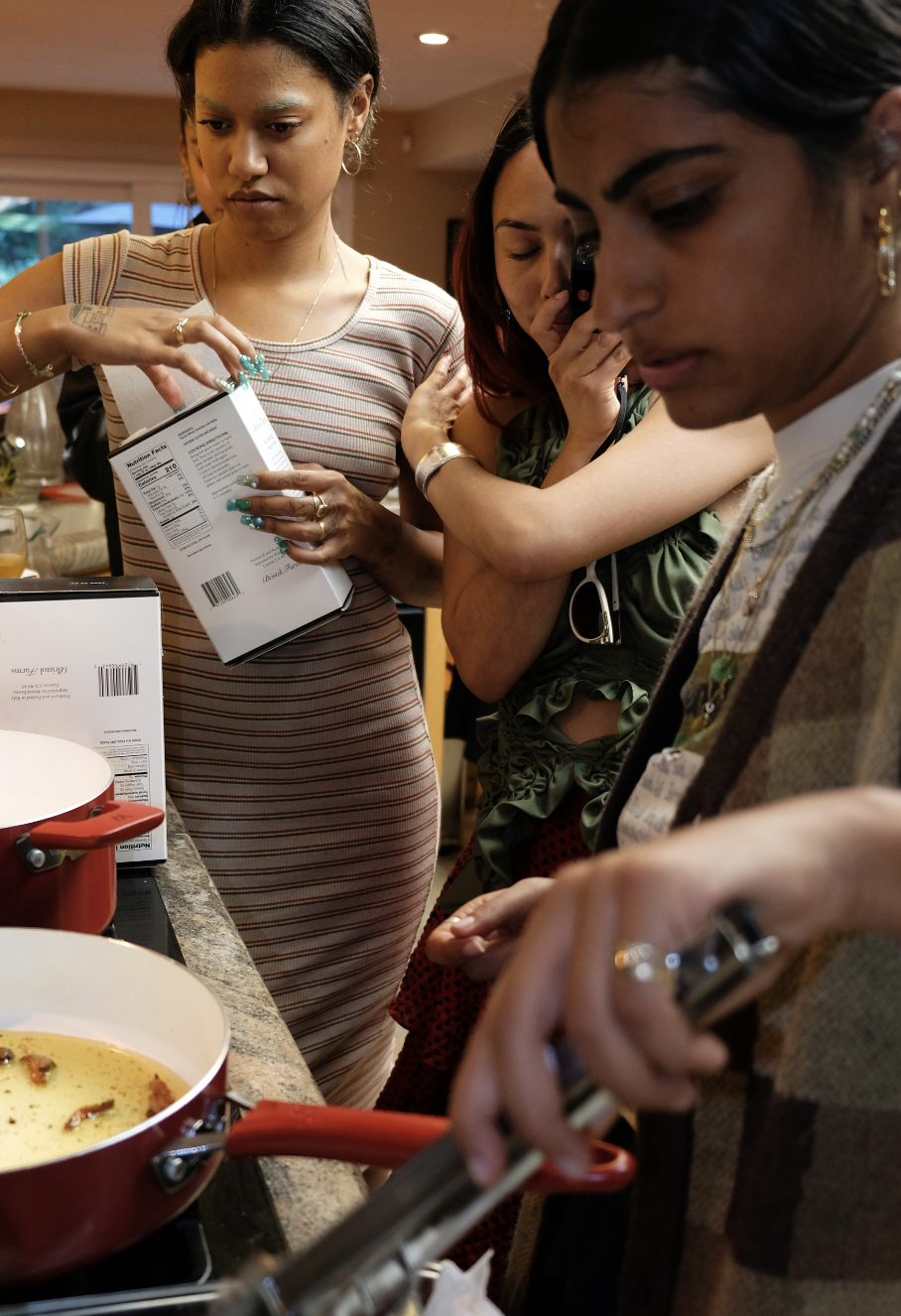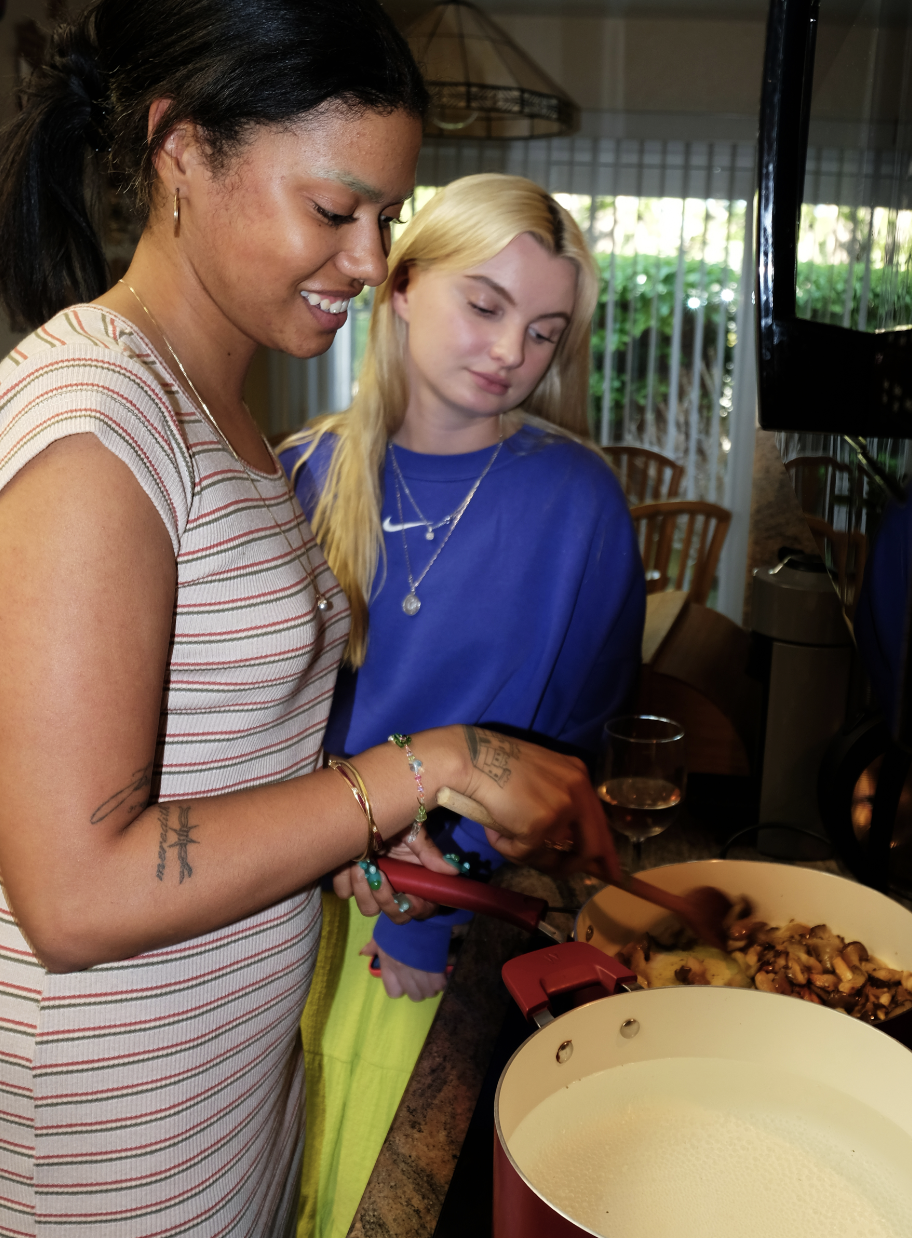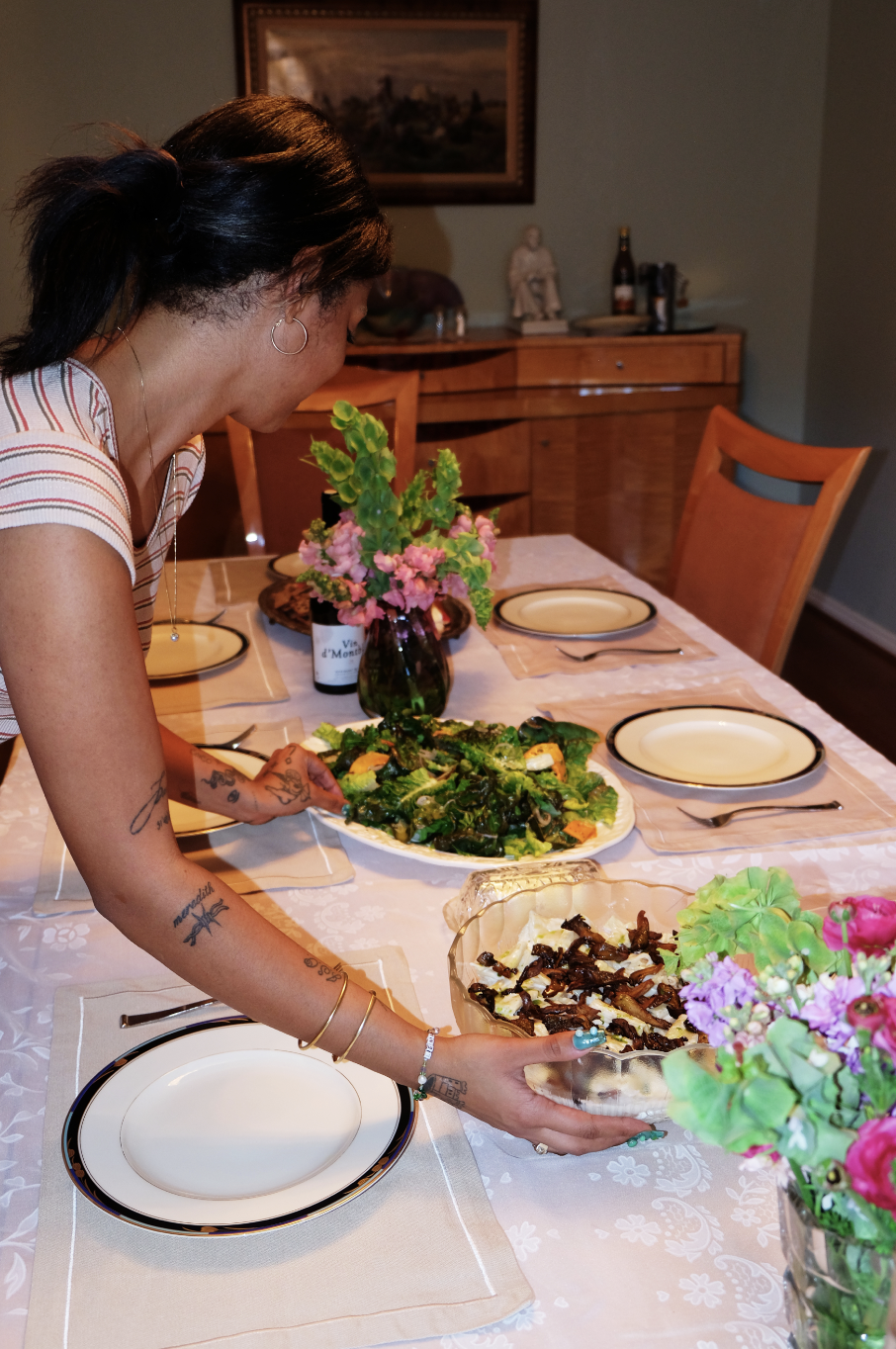Mina Stone Cooks for the Artist that Lives Within Us
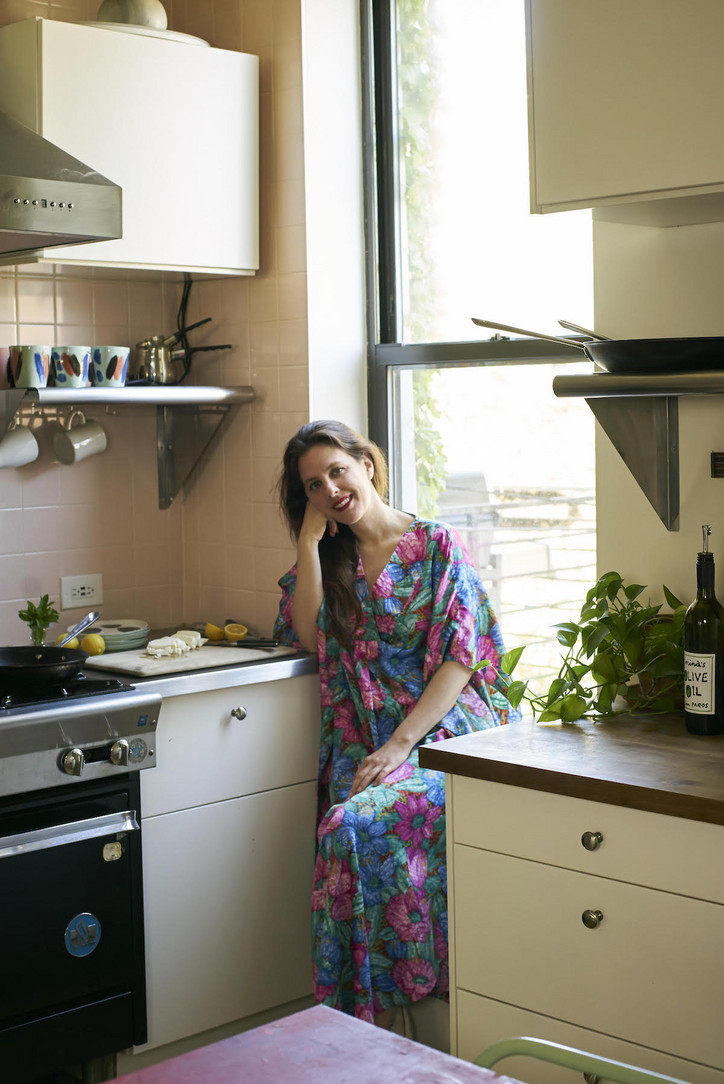
Chef Stone's food is sweet to the eye and satiating to the soul. Take a look at what she's up to below:
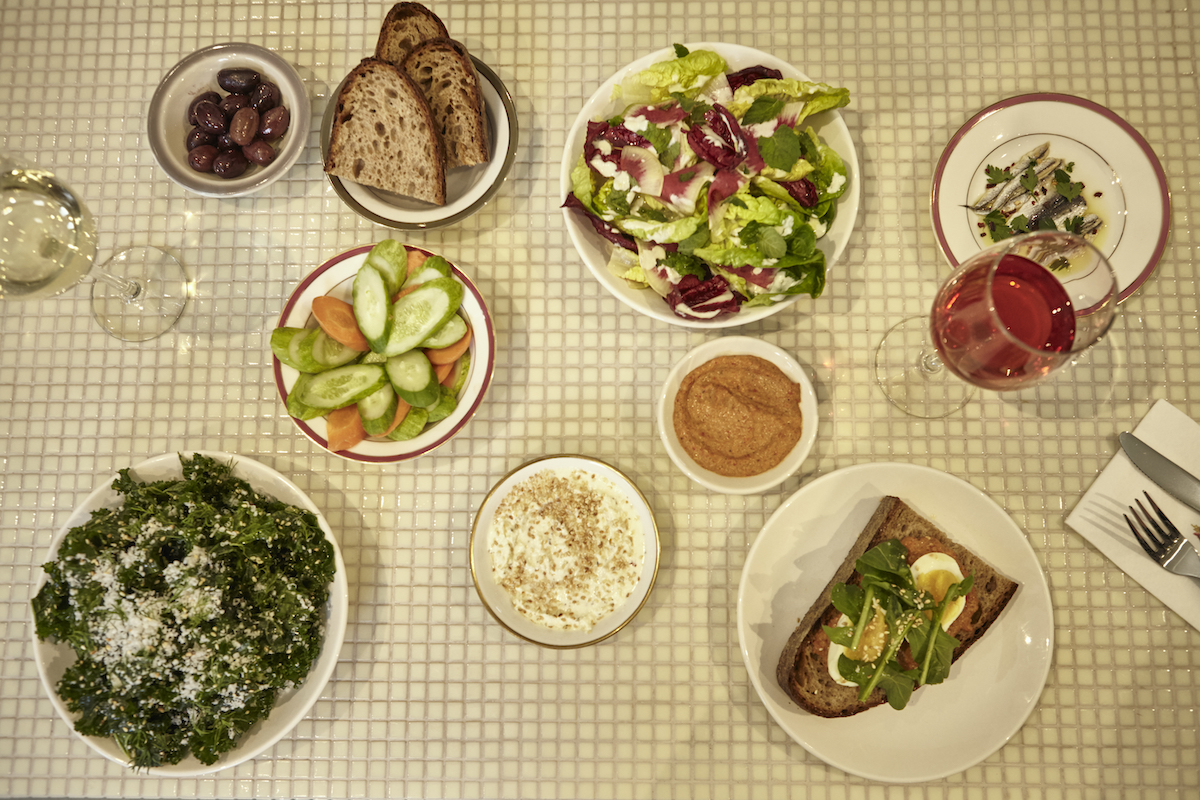
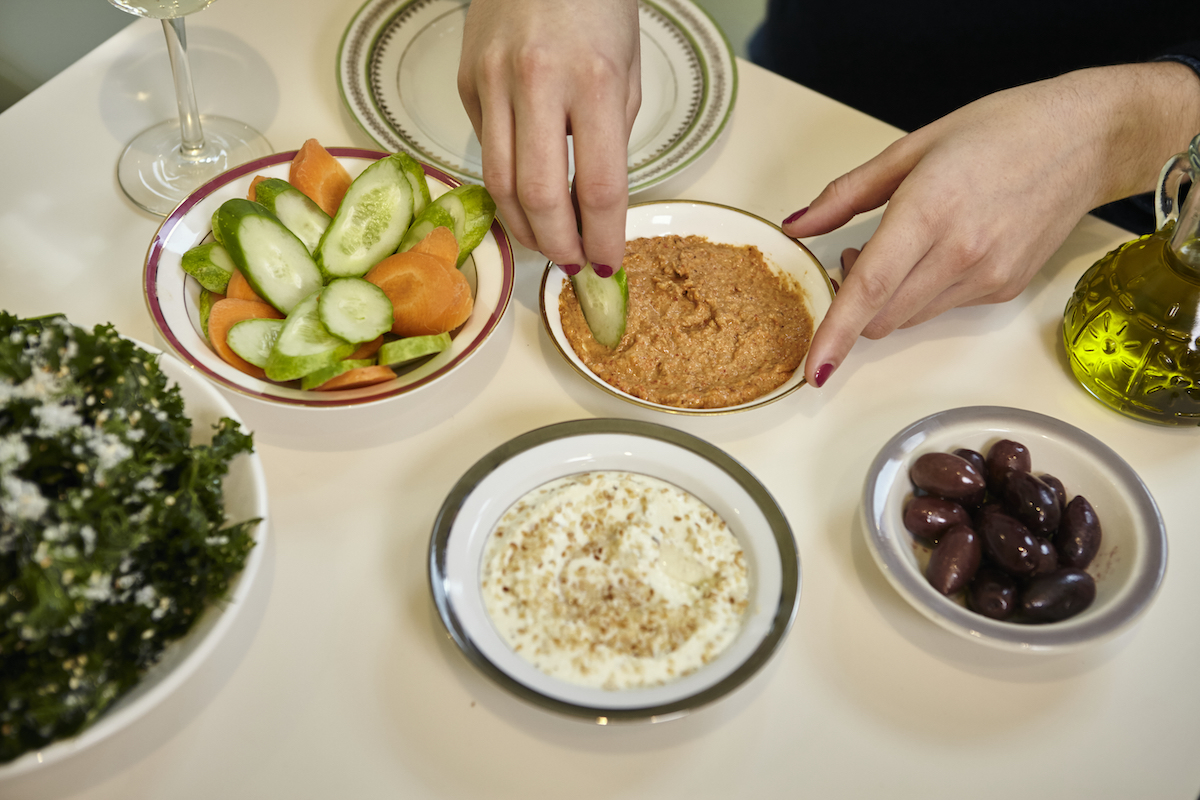
Mina Stone, why don't you introduce yourself?
Where should I start? I've been cooking for a long time. I started in the world of fashion. I went to prep for fashion. I wanted to be a fashion designer since I was a little girl. My mother is Greek, my dad is from Ohio. I grew up with a lot of Greek food in my life and went back and forth to Greece. I always knew and enjoyed cooking.
I graduated from Pratt and I wanted to start my line and I thought, ‘well, okay, how can I support myself while I'm making my clothes? My clothes aren't going to make me enough money.’
It was a really interesting time in New York City where the independent designer was sort of—celebrated and sought out. It was a very fun time to be a designer. And I met wonderful people. I started just doing any cooking job I could get. So, I cooked for a family in Manhattan, two to three times a week, and I learned a lot about food. Like, ‘oh, you should have a Christmas party. Let me cook for it.’
At one of those parties, I met the director of Gavin Brown's enterprise. He had his gallery in the west village at the time. I didn't know anything about the art world. She asked me if I wanted to cook a dinner for 40 people. And I said “No, thanks. That's crazy.’ Long story short, I thought about it, and I did it. That was the start of me cooking at Gavin's for many years. And then I met Urs Fisher, the other artist I cooked for many years through his gallery.
In 2010, Urs was like, ‘Nina, do you wanna make a cookbook together?’ and I was like, ‘Yes.’ We worked on my first cookbook called Cooking for Artists. Published that in 2015. I opened up the restaurant at PS1 in 2019. Um, and that was just really, I guess I had just been in their periphery. It’s funny now, that first cooking gig. I did for Gavin's, but I was like, ‘No, no, no, no, no.’ I'd never wanted to have a restaurant before. I've always sort of assumed that how I cook and my ethos around food is, is almost like the opposite of a restaurant.
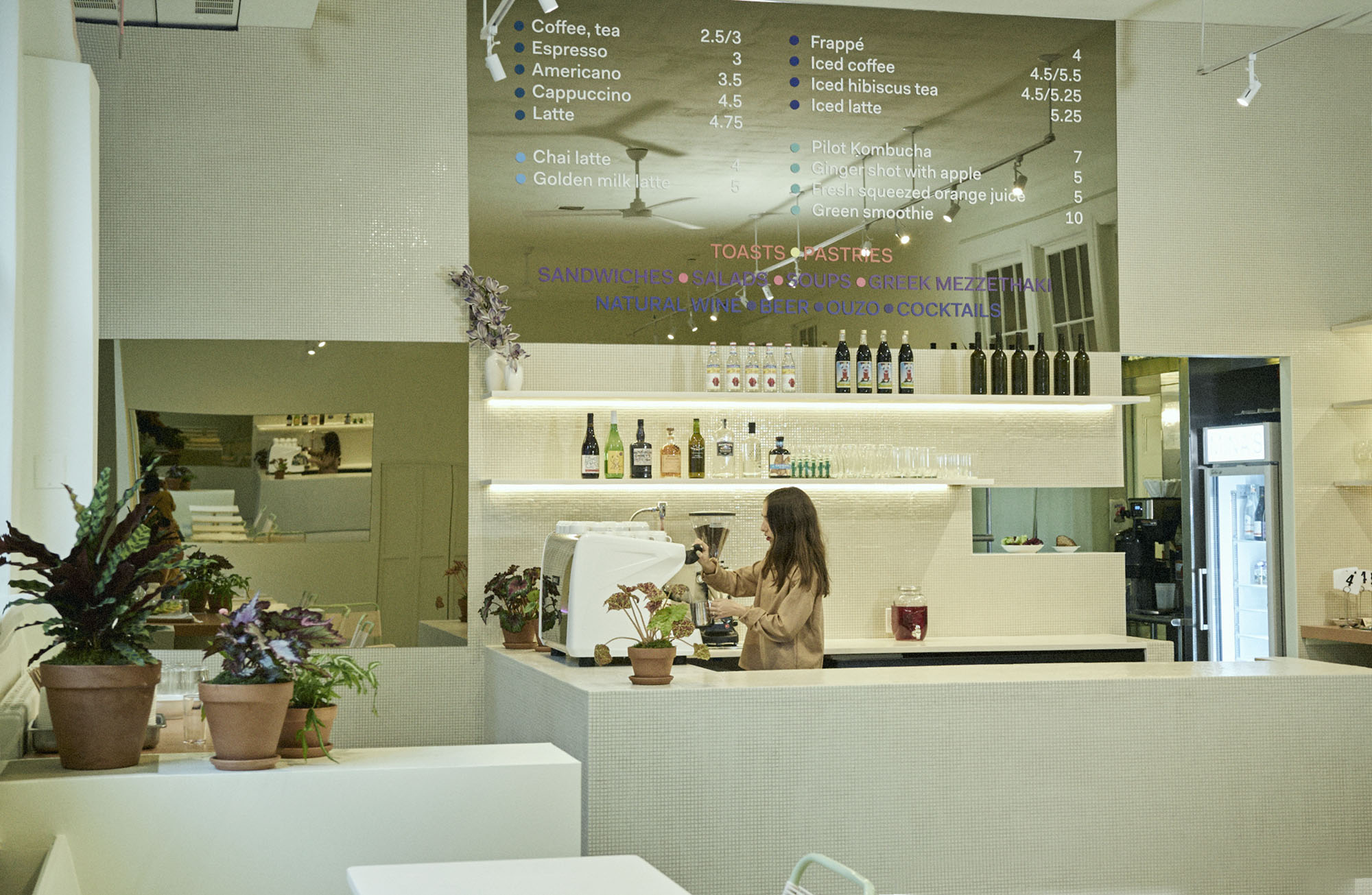
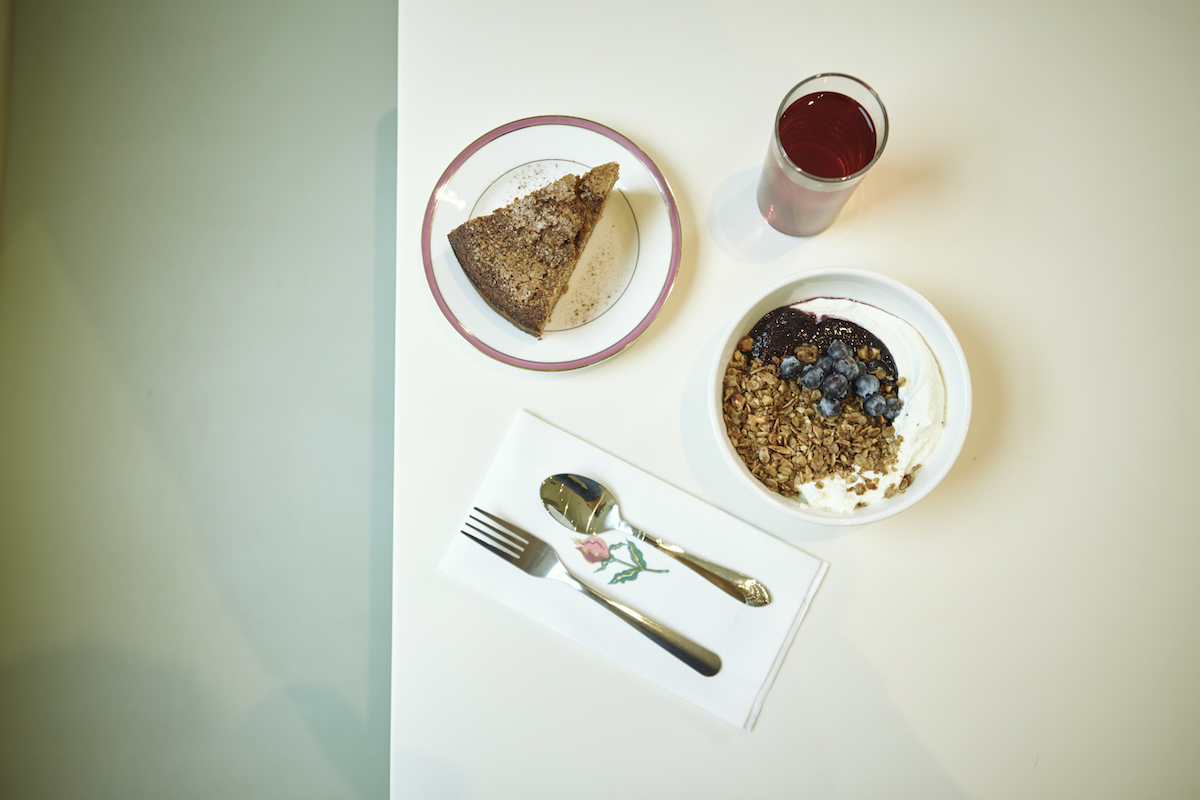
What is your ethos around food, and does running Mina’s align with it?
My ethos is that [food] is this very easy form of education. You eat a dish from a different country and you end up learning so much without even really realizing it. You connect with people. That's what I'm into these days. I could eat something, I could learn something, I could make a dish, share it with somebody else, and they would learn something. You get to do that all while being like, ‘Oh, this is delicious!’ It's been a bit of a journey. It started with this feeling of, I don't think I ever really wanna have a restaurant. I thought something would always get lost in the food. No matter how well-intentioned the chef was, something gets lost in the hustle of what it takes to run a restaurant. I'm not wrong. I've seen it myself. It's very hard to make a living, it's very hard to be spontaneous. There is a tight ship in place at the back of the house. I am very passionate about really simple food and home cooking. That is exciting. Having a grandma's food. There's like some magic to it. And so that's why I was like, ‘oh, restaurants are not for me.’ Something I think about a lot is that combination in your stomach. That's the difference between a restaurant and home cooking as well, is that everything's meant to be eaten together at one meal, and it's also going to work with your body. I've been eating lunch at the restaurant with friends and have a whole spread. And I like that challenge of sitting down with the entire menu on the table and thinking like, does everything work together? How would I feel?
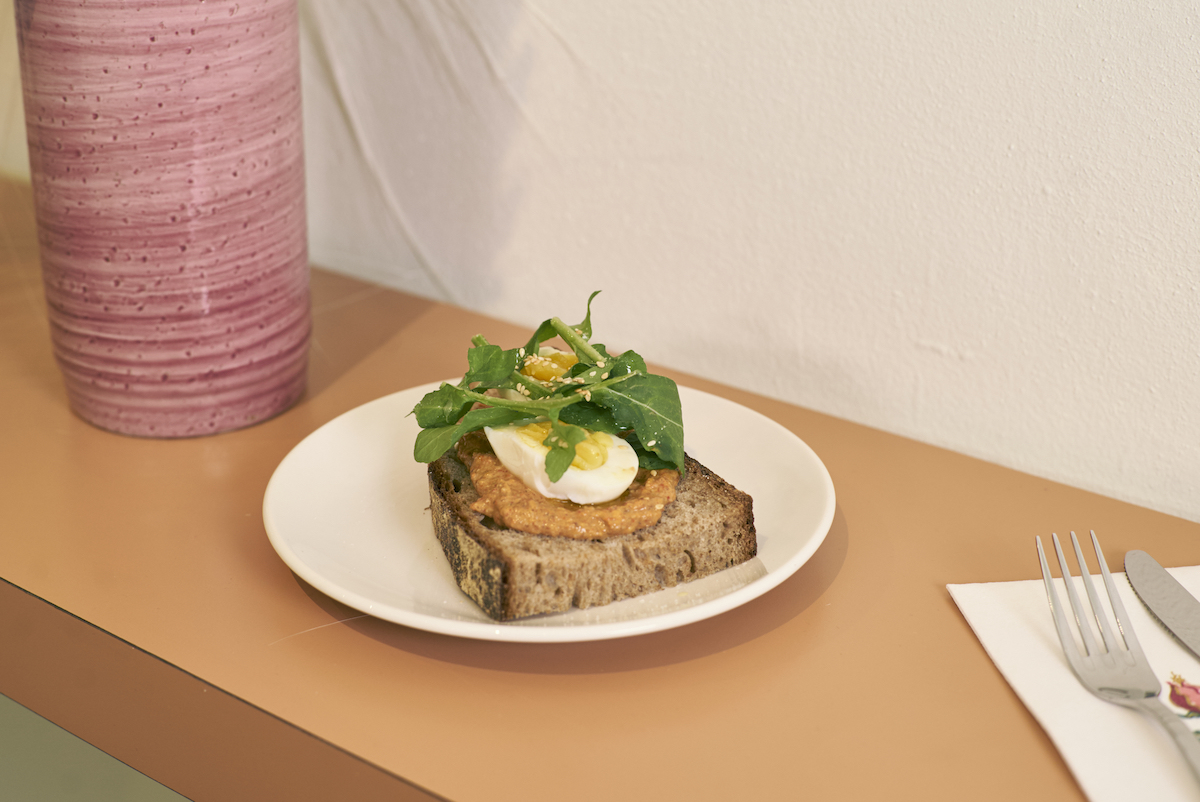
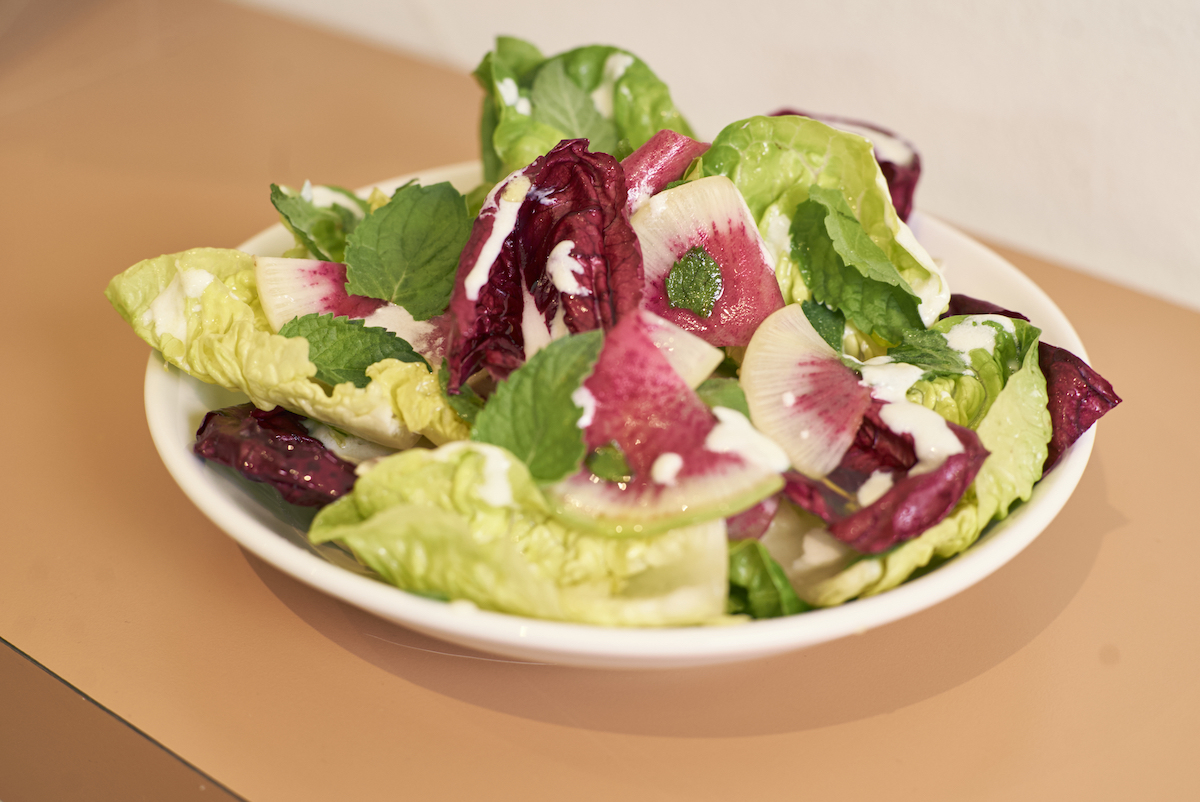
What was it like for you, to jump into running a restaurant?
The first word that comes to mind is that it was a nightmare. Yeah. A nightmare. It was very challenging. We were working our butts off, and we were also running a catering and we were running the festival. So it was a huge undertaking. And then, you know, we shut down. Because of COVID, we were open to a limited crowd, and we could only use a limited budget, with limited staff. I had to make it under those conditions. I'm proud of our menu today. Everything is very careful; It’s apt for the museum setting. There's an equilibrium to our menu.
Congratulations on Lemon Love and Olive Oil. Where do you find pockets of inspiration and the desire to develop a recipe? What does creating something new look like for you?
It's largely unconscious. The first book and the second book were very minimally staged. Like, we made all of the food because we ate it. I ended up gauging the recipes that went in the book as something I've made over and over again, and those recipes just lead to something else. I start altering a salad until it ends up being a different salad, or I eat something delicious in Greece, and then I try to recreate it to my sensibility. It keeps changing. I realize that it's happening right now because I'm changing the menu at the cafe, and I've been thinking a lot about all of the pies that Greek people make. I look at the seasonal availability of our fruits and vegetables, and I'm like, ‘Okay, they're bringing zucchinis from California. They're really sweet and delicious. So I'm gonna make a zucchini pie, but I've never made this before. Hmm.’ But, I am not an ingredients nerd. I don't like a certain dogma about grocery shopping. Even though I’m educated about sustainability, I don't want to only go to the farmer's market. If I go up the street to my regular bodega, with the people who I know, and to have that exchange is almost if not more meaningful. It's like an ecosystem.
Do you have a certain meal that you turn towards to tuck into the joy of cooking?
This is what both me and my mother make to console either each other or ourselves. The Greek word for it is Me Kima. It's Greek Ragu over pasta, but it's with cinnamon and cloves and so delicious. Greek cheese or Parmesan. Except for tonight, it's changing: little Greek meatballs with egg, a ton of fresh mint, and grated onions. You fry them, and then you do hand-cut French fries on the side. I grew up with these. Minty meatballs and hand-cut French fries.
